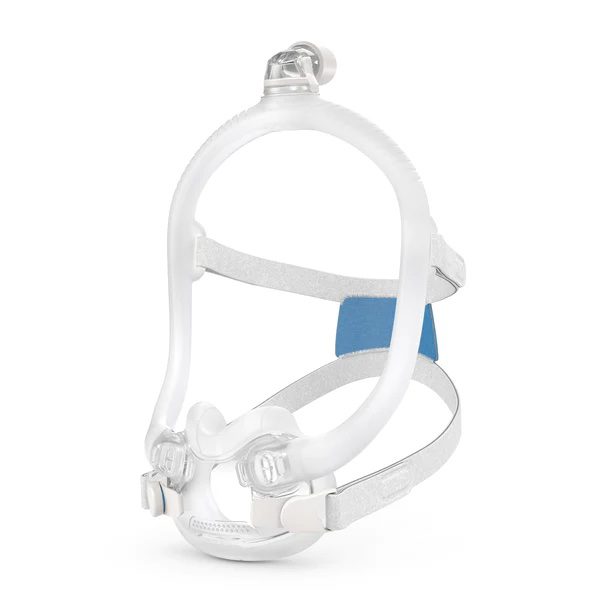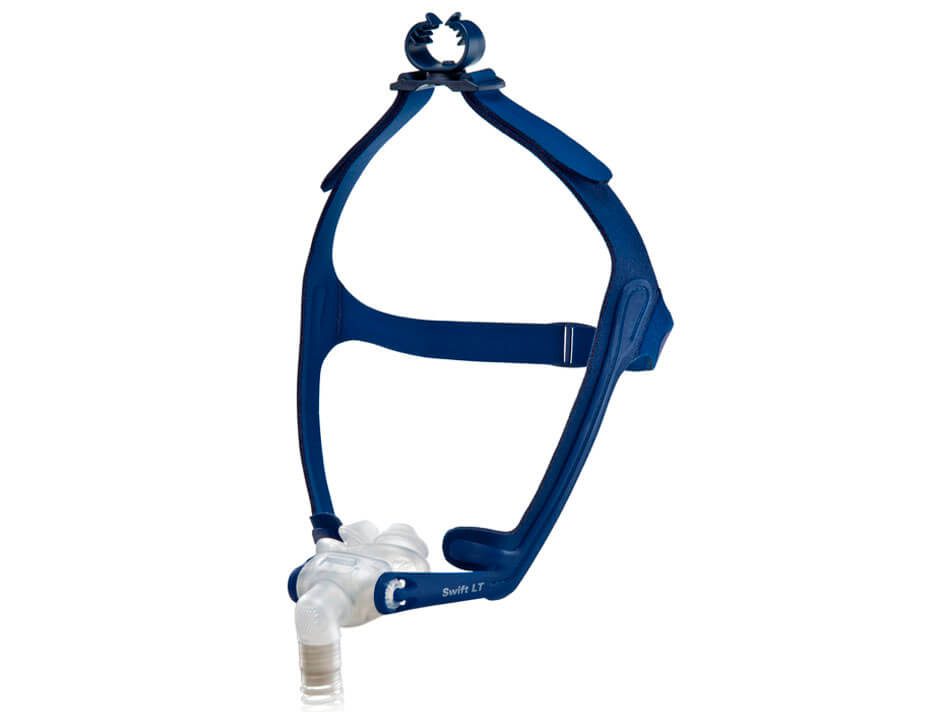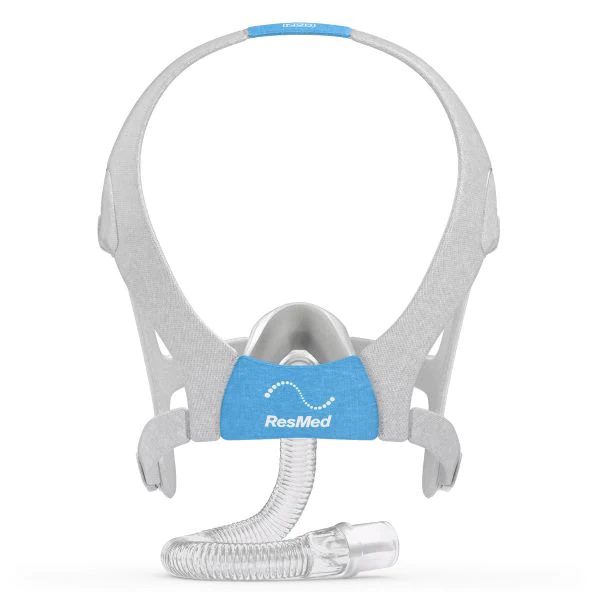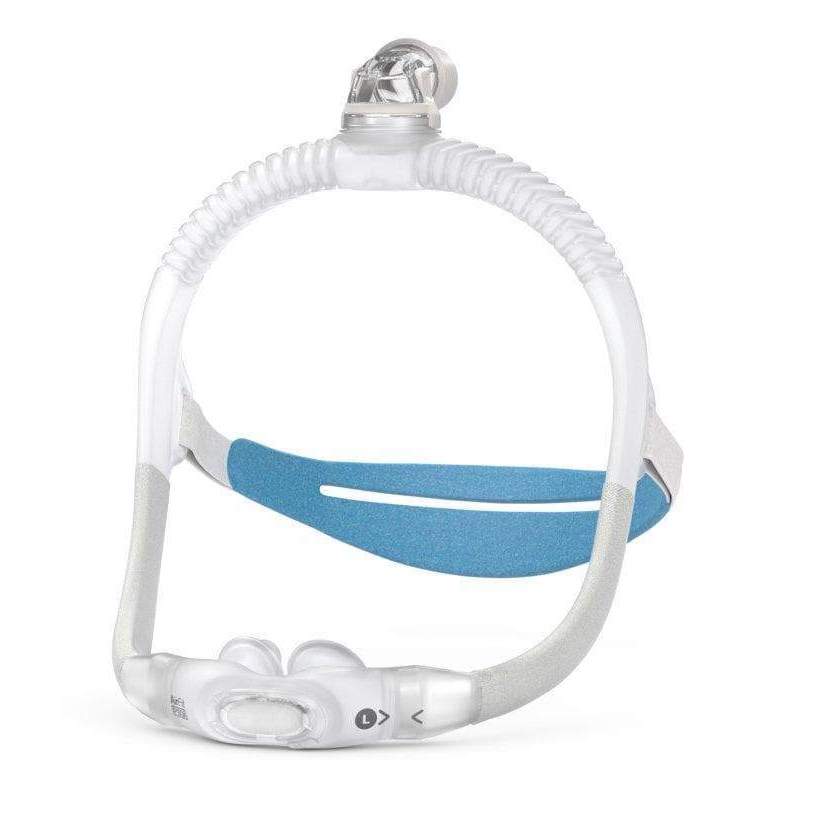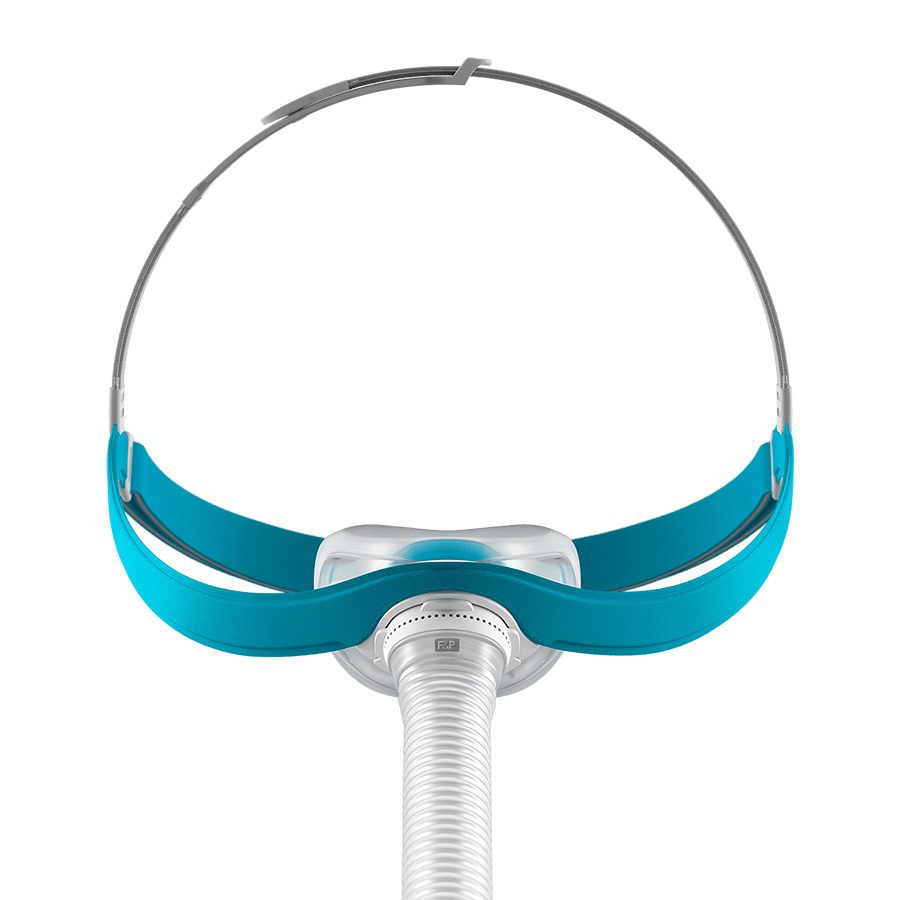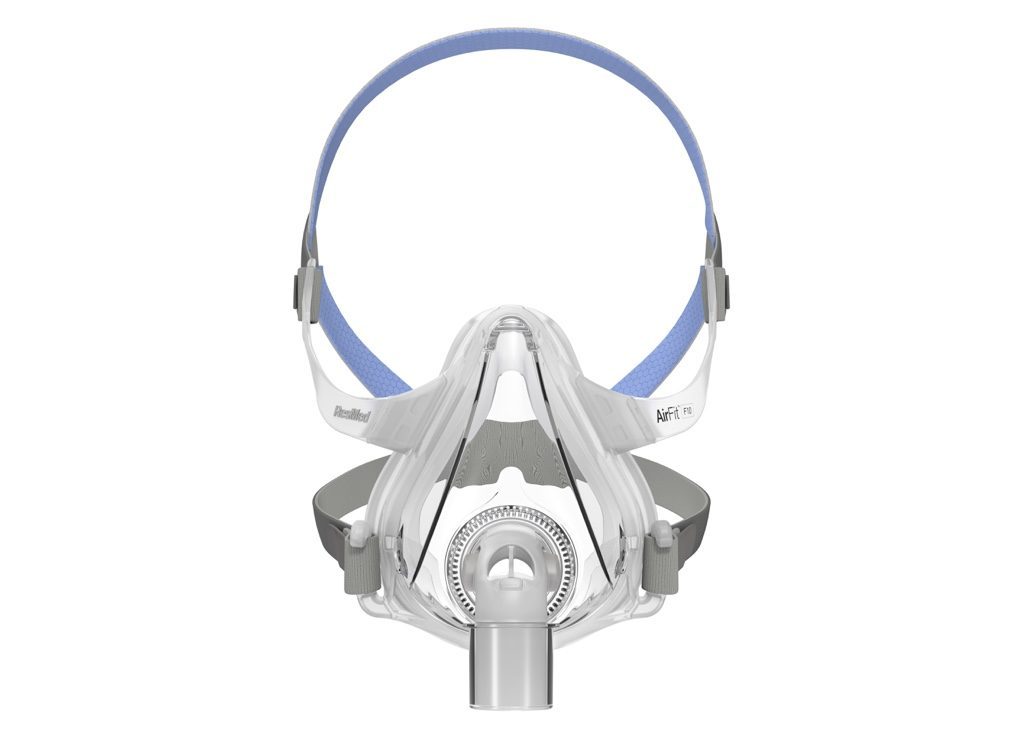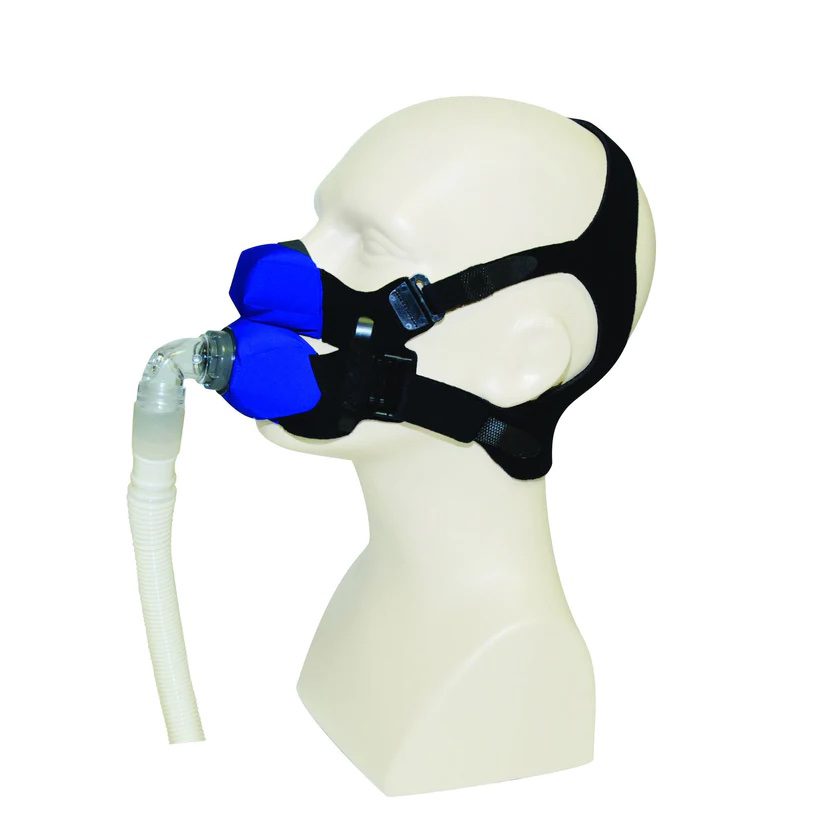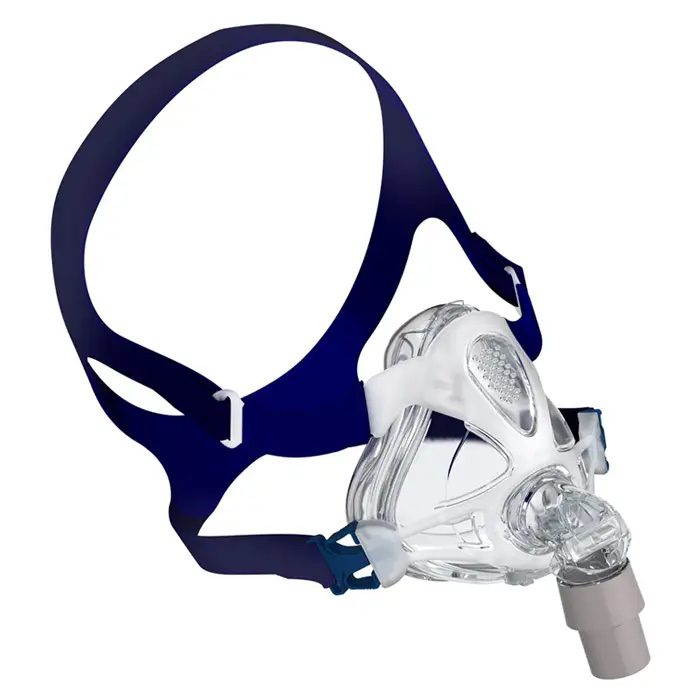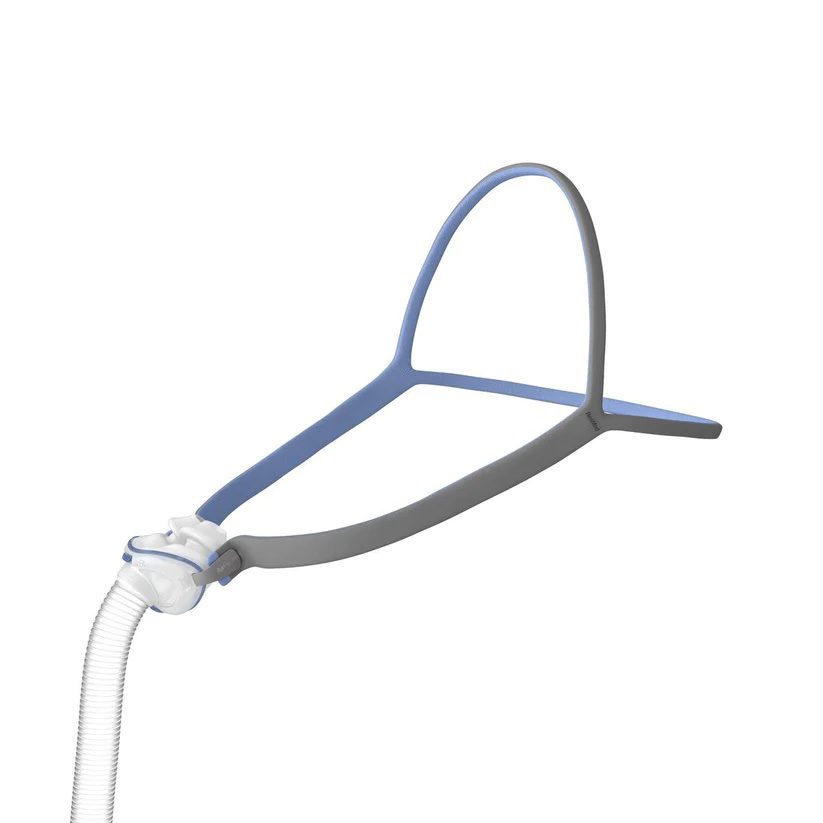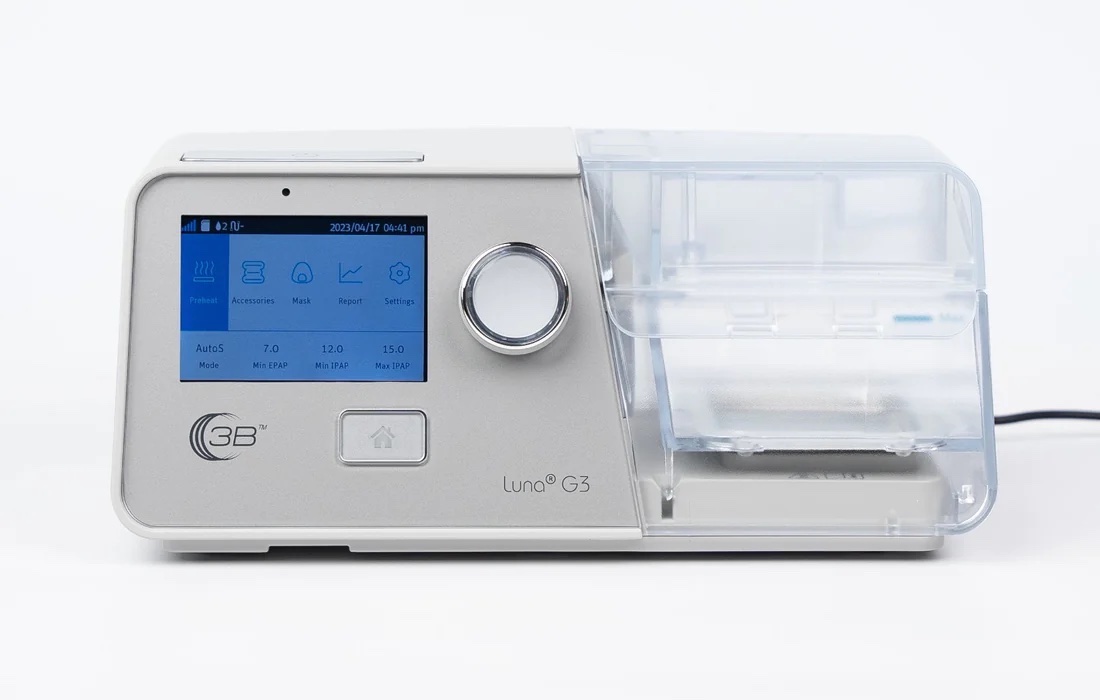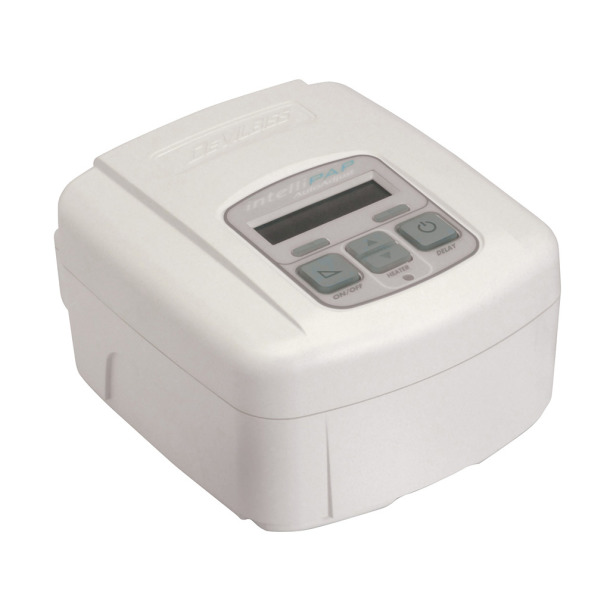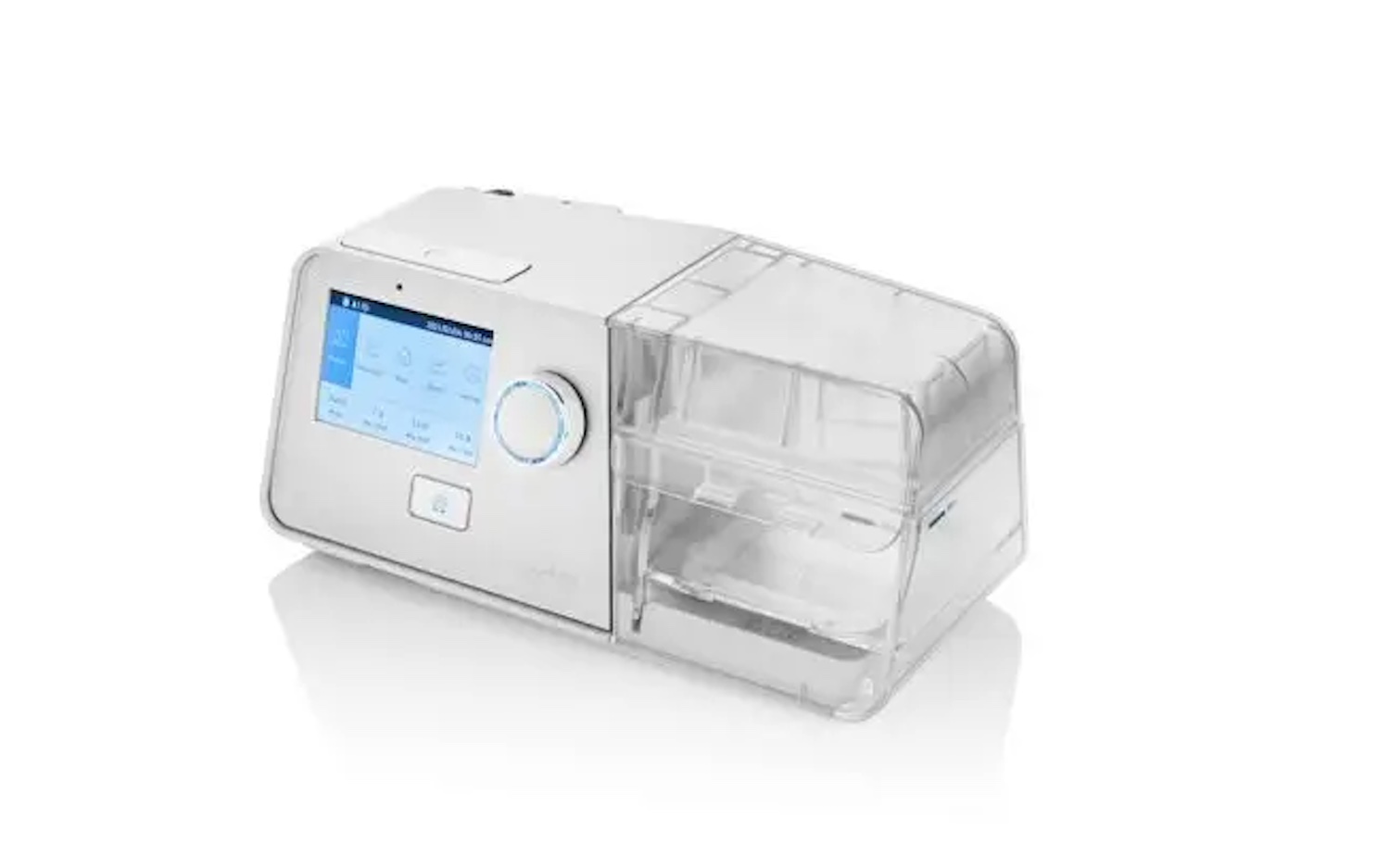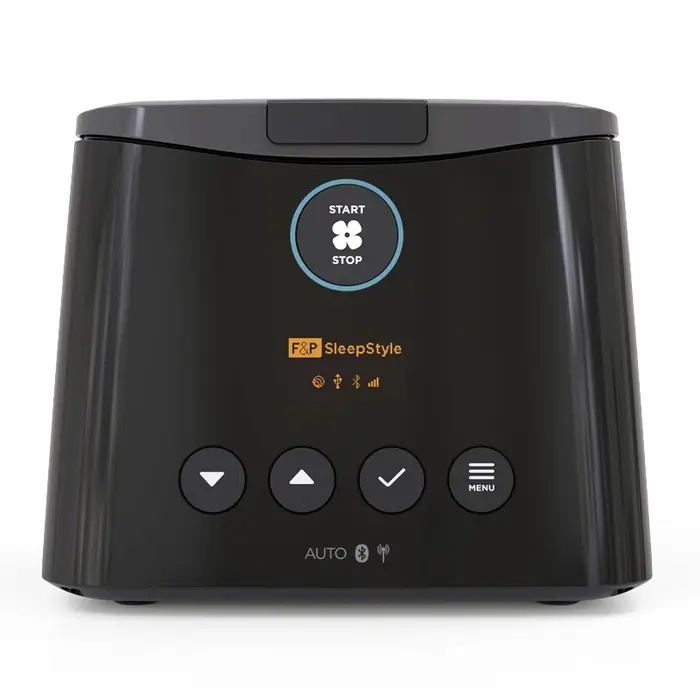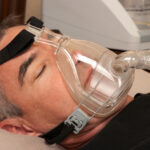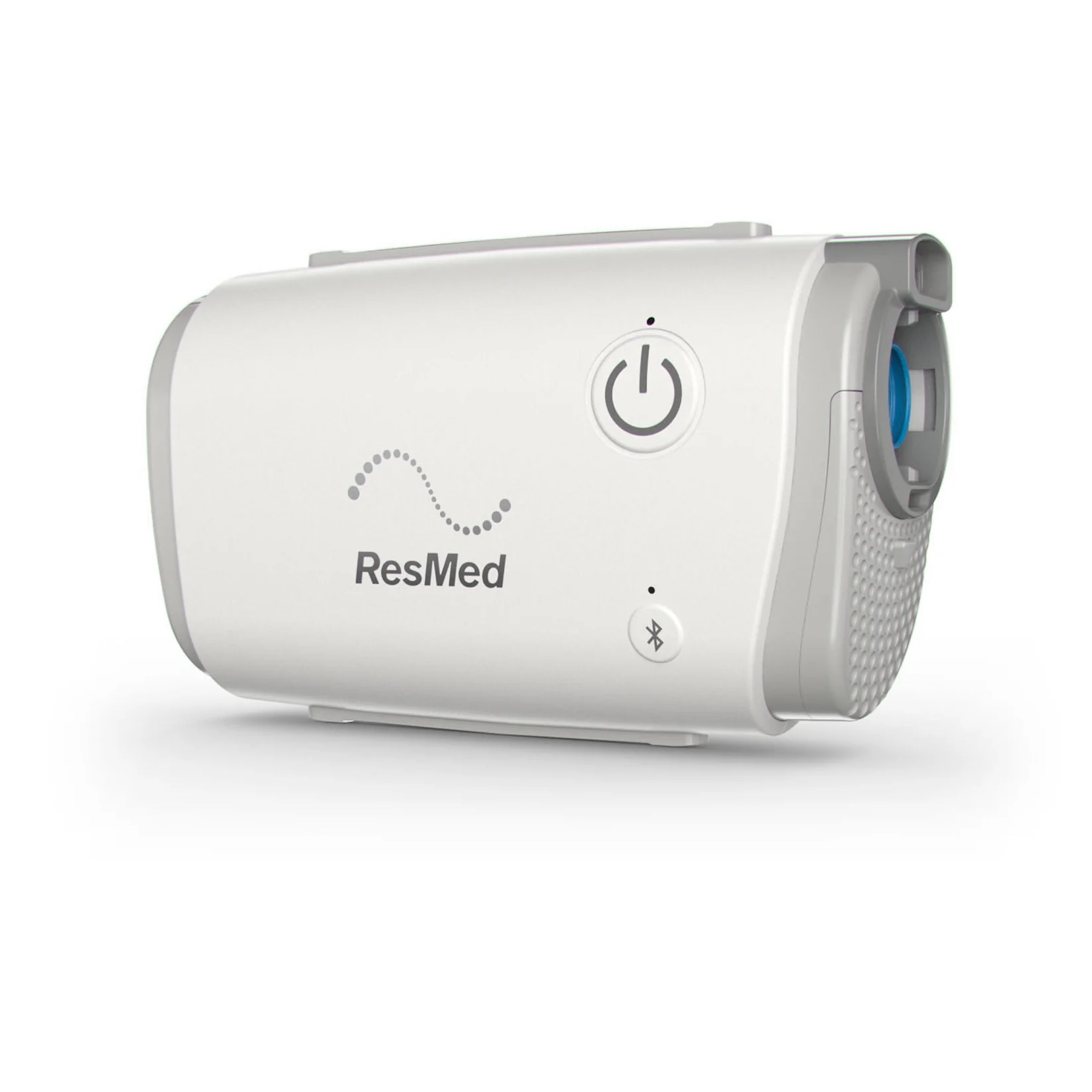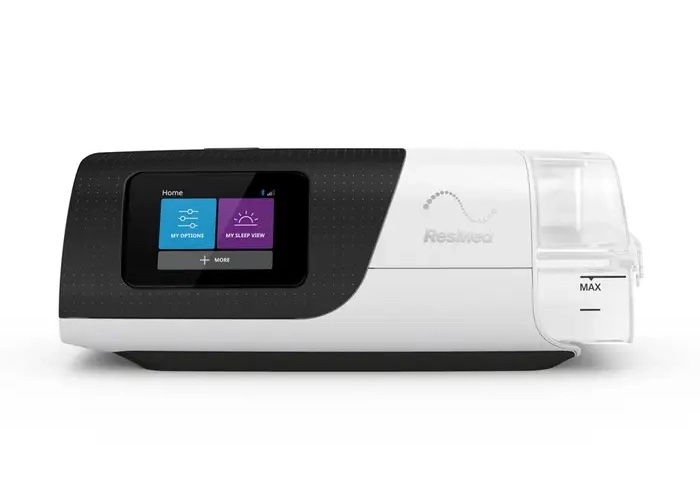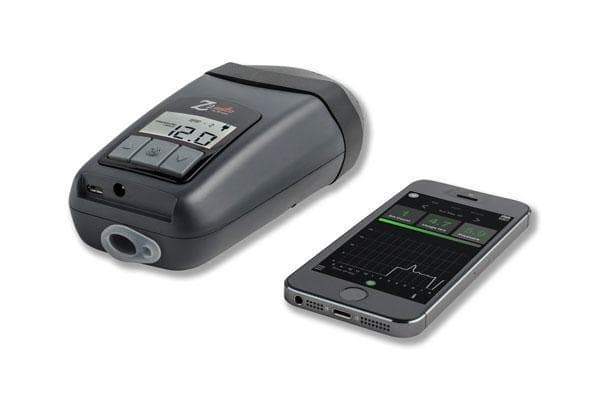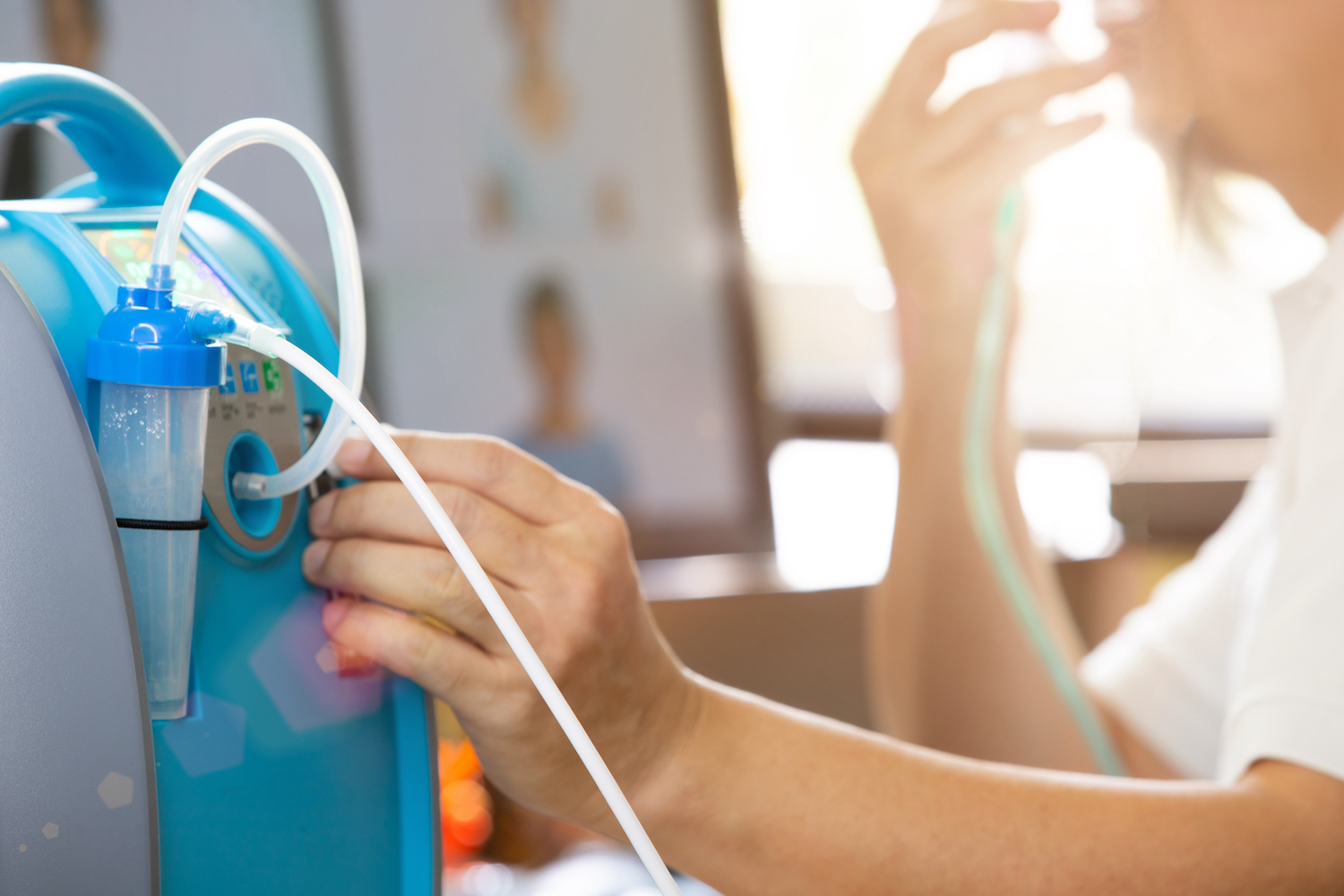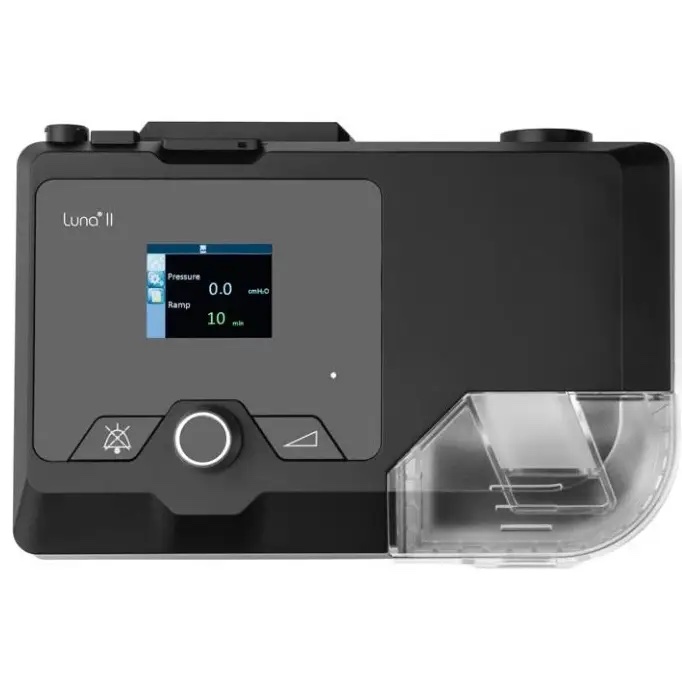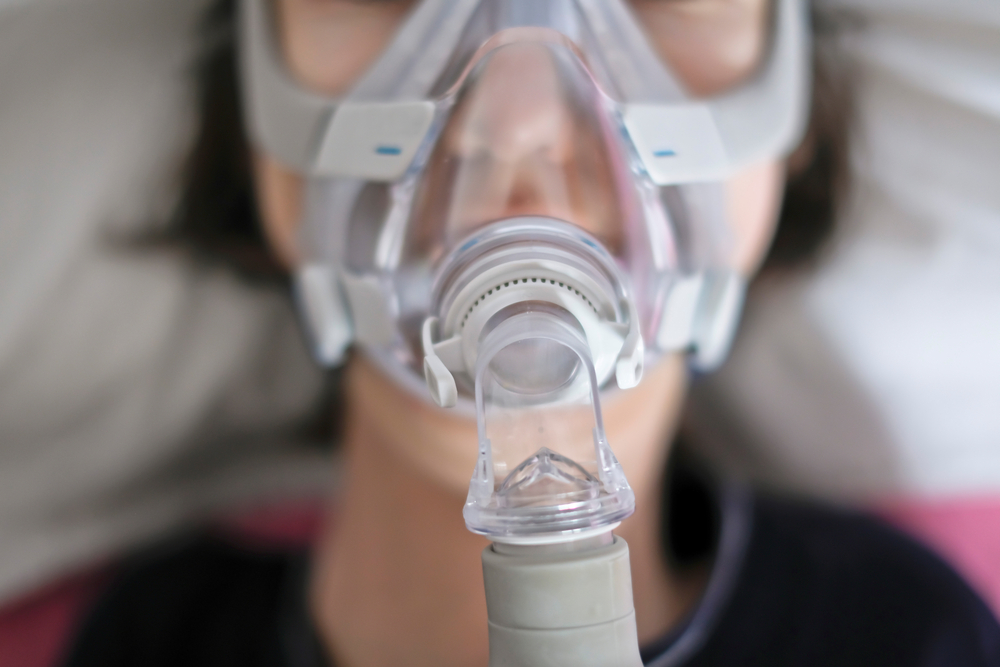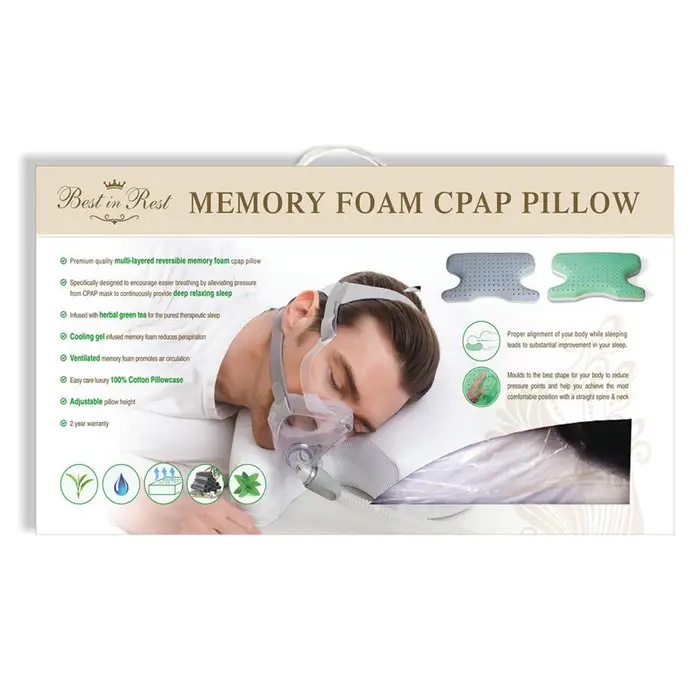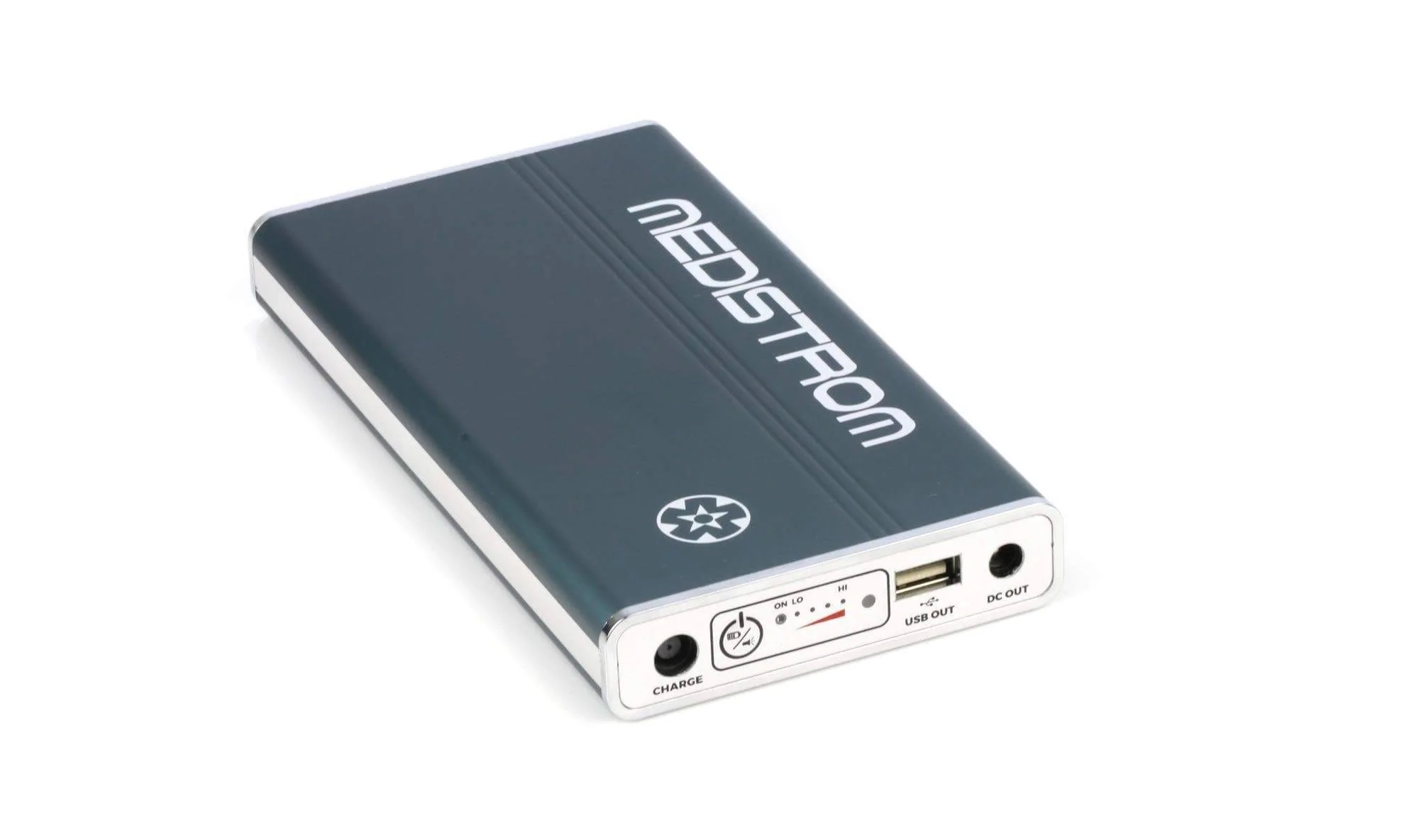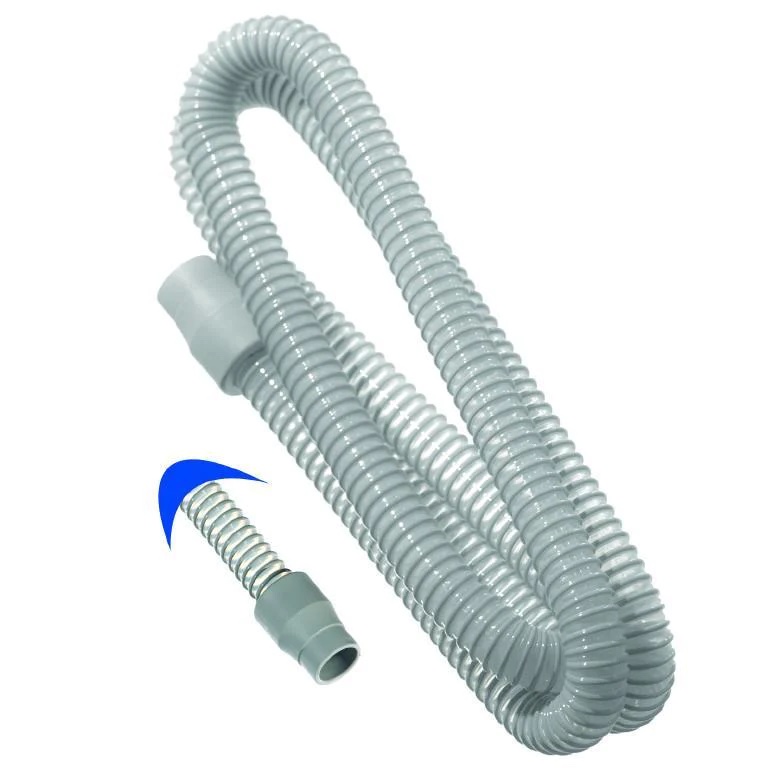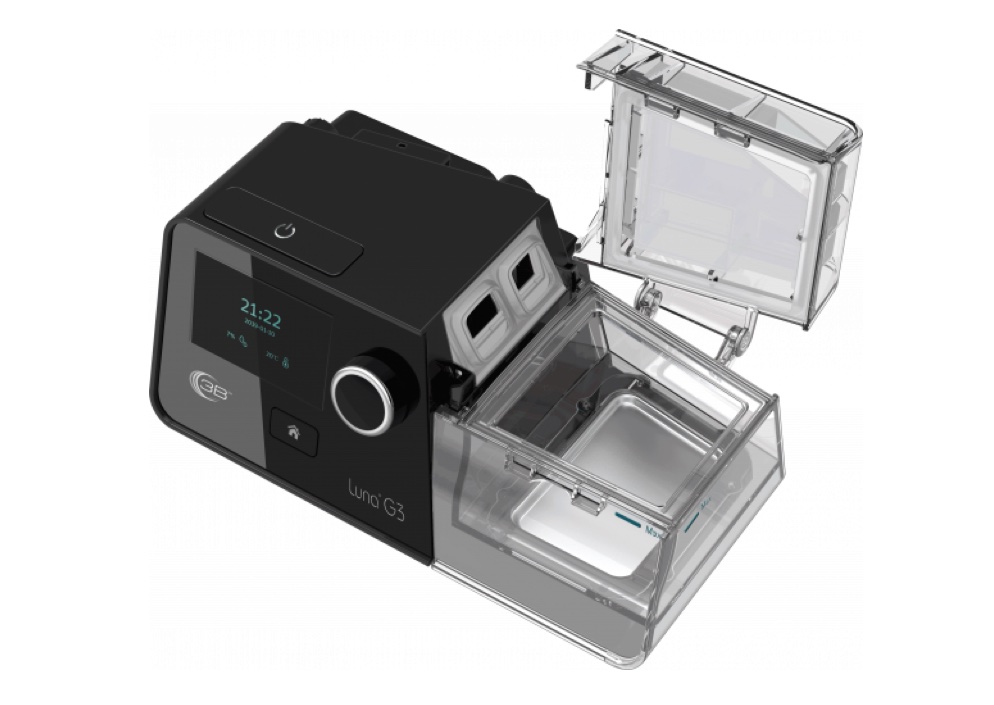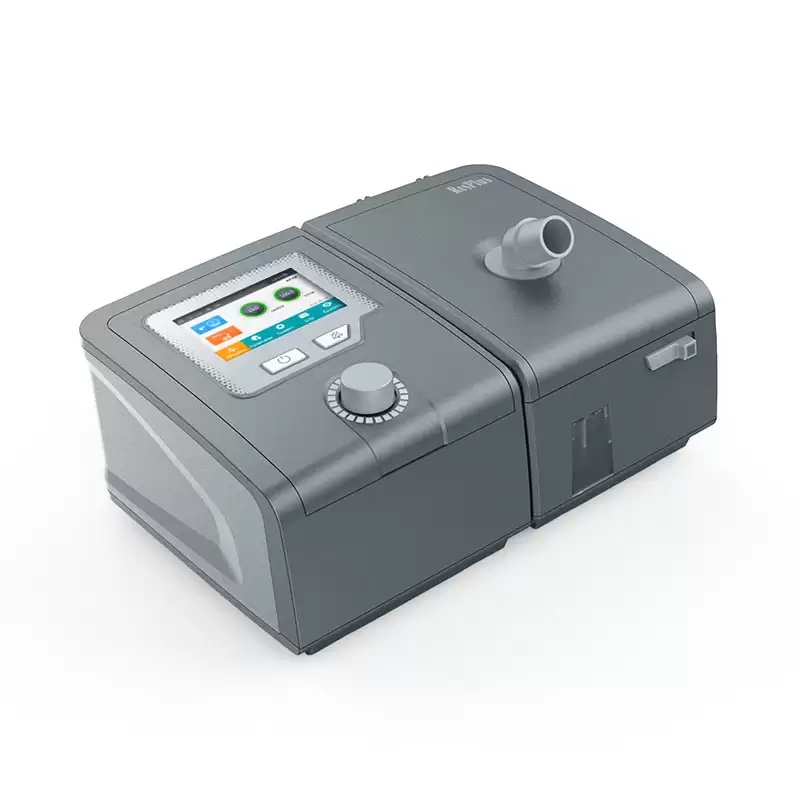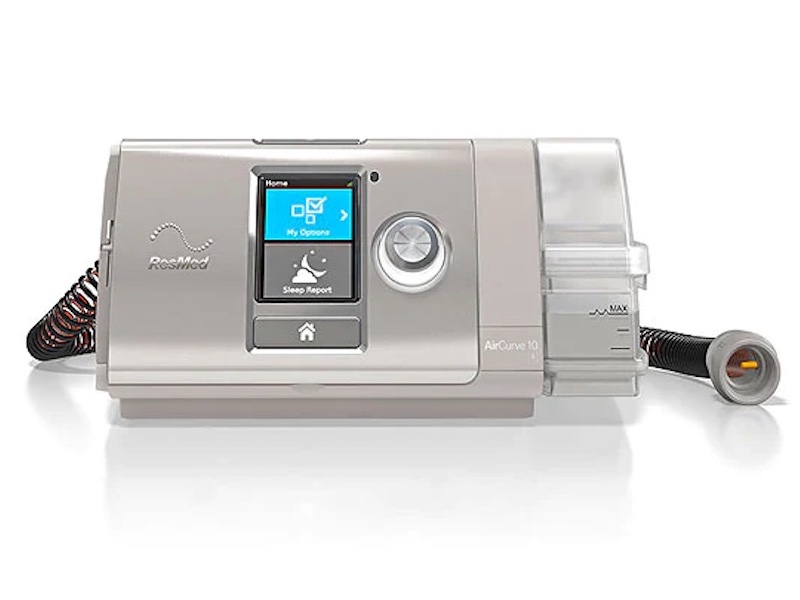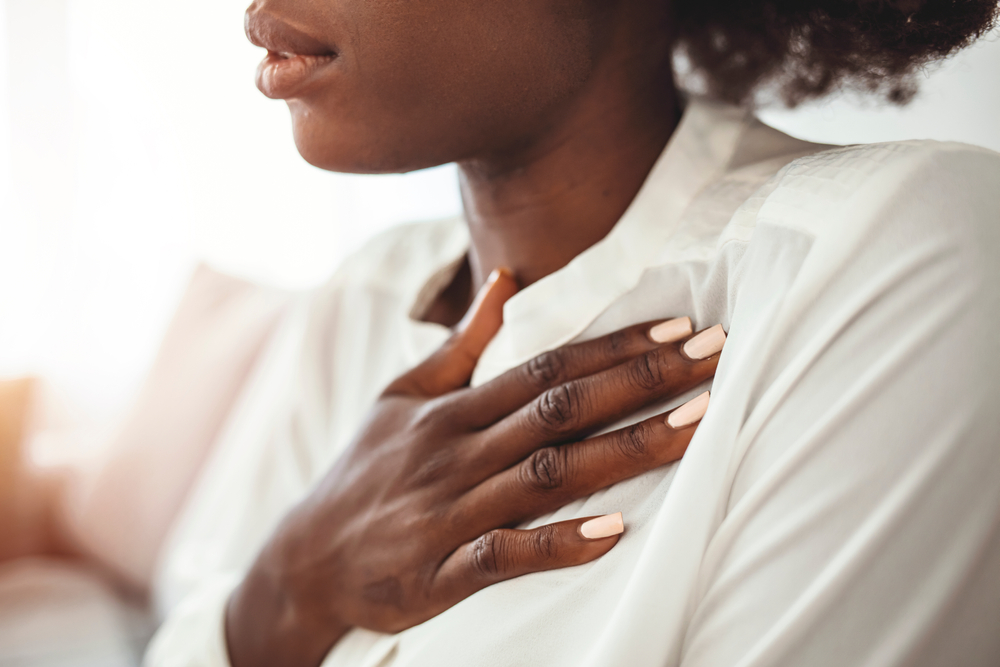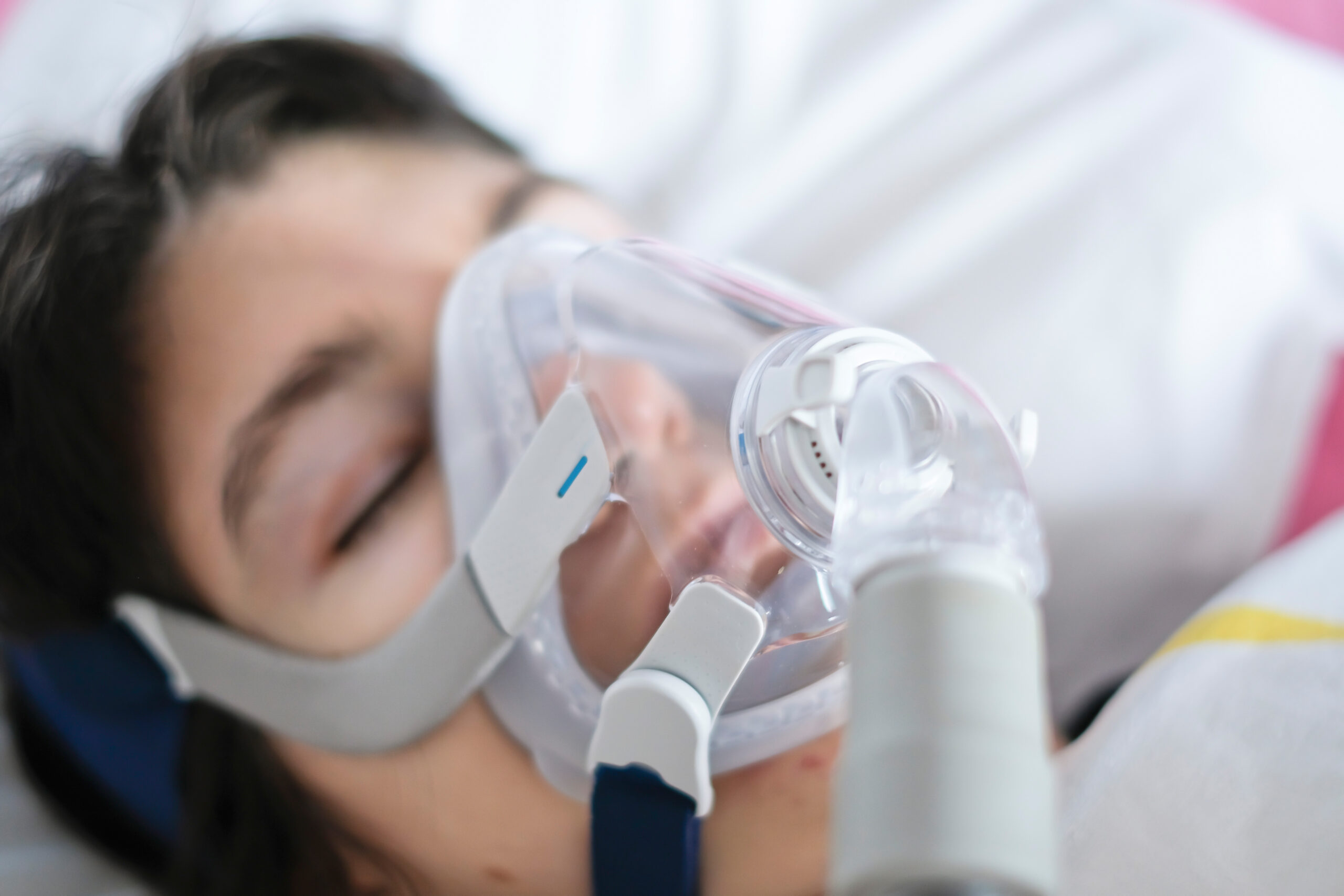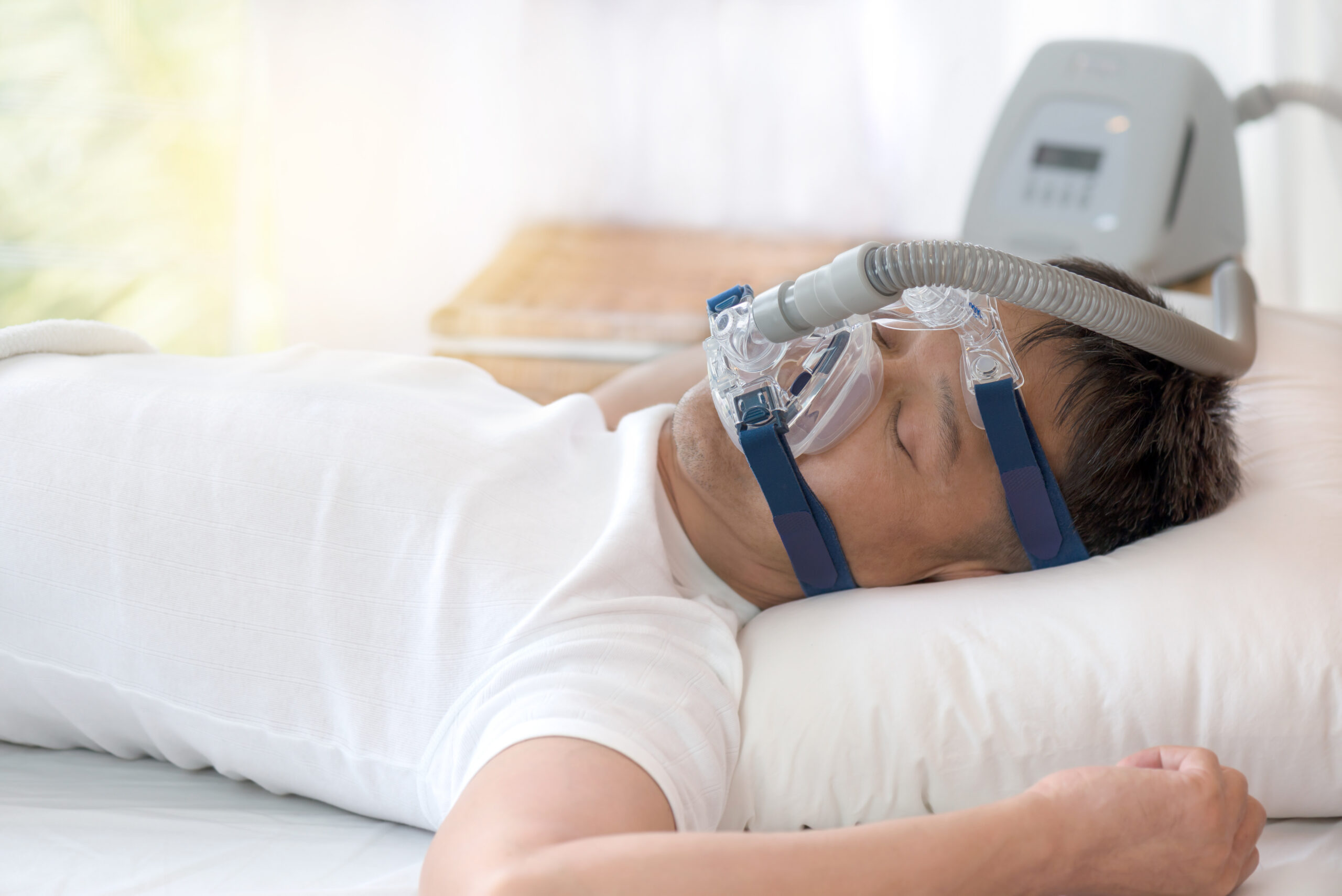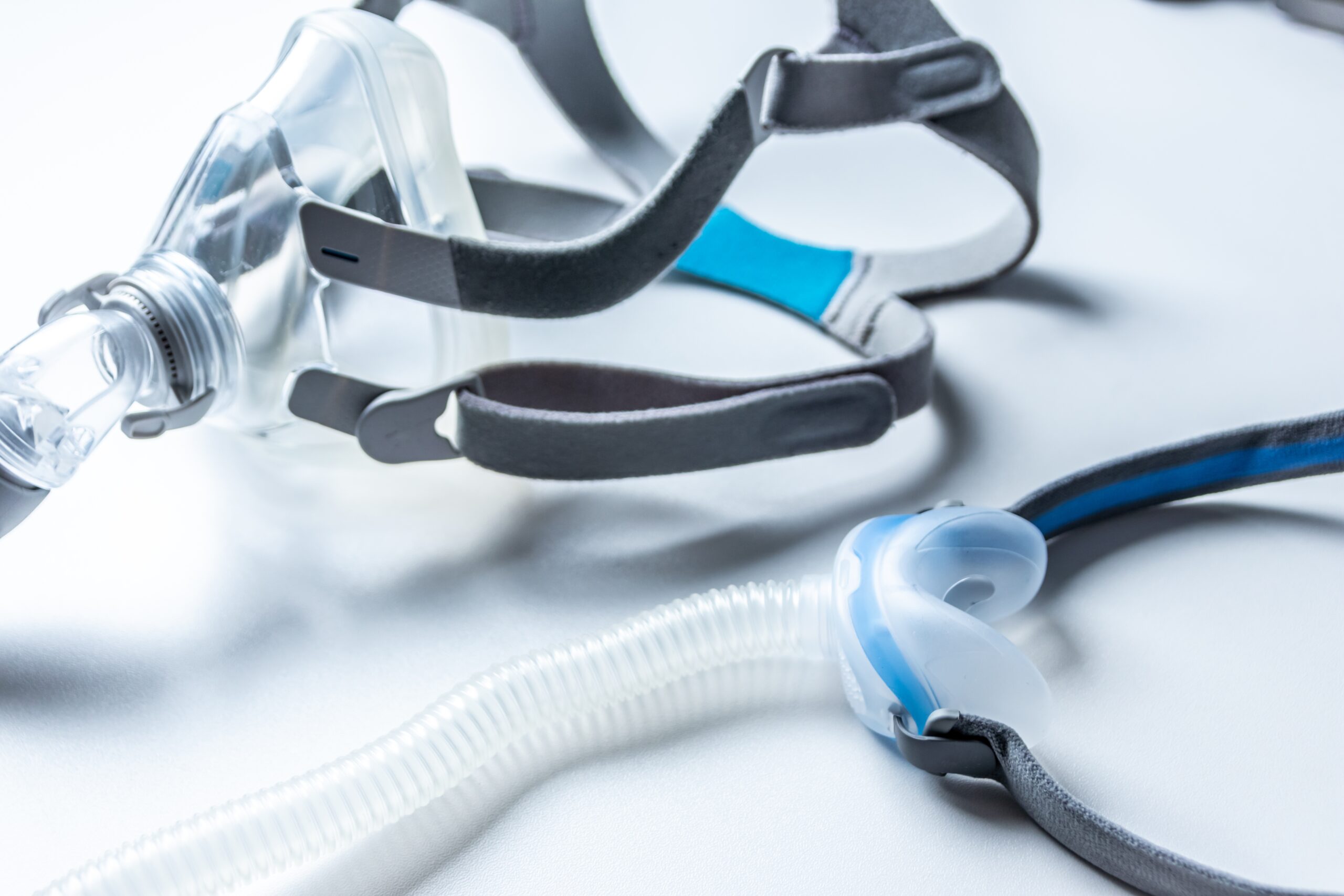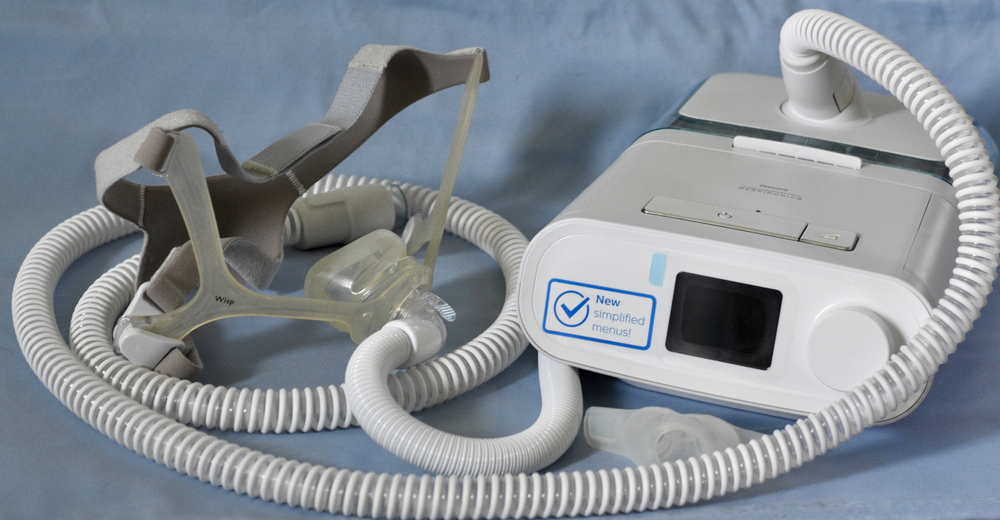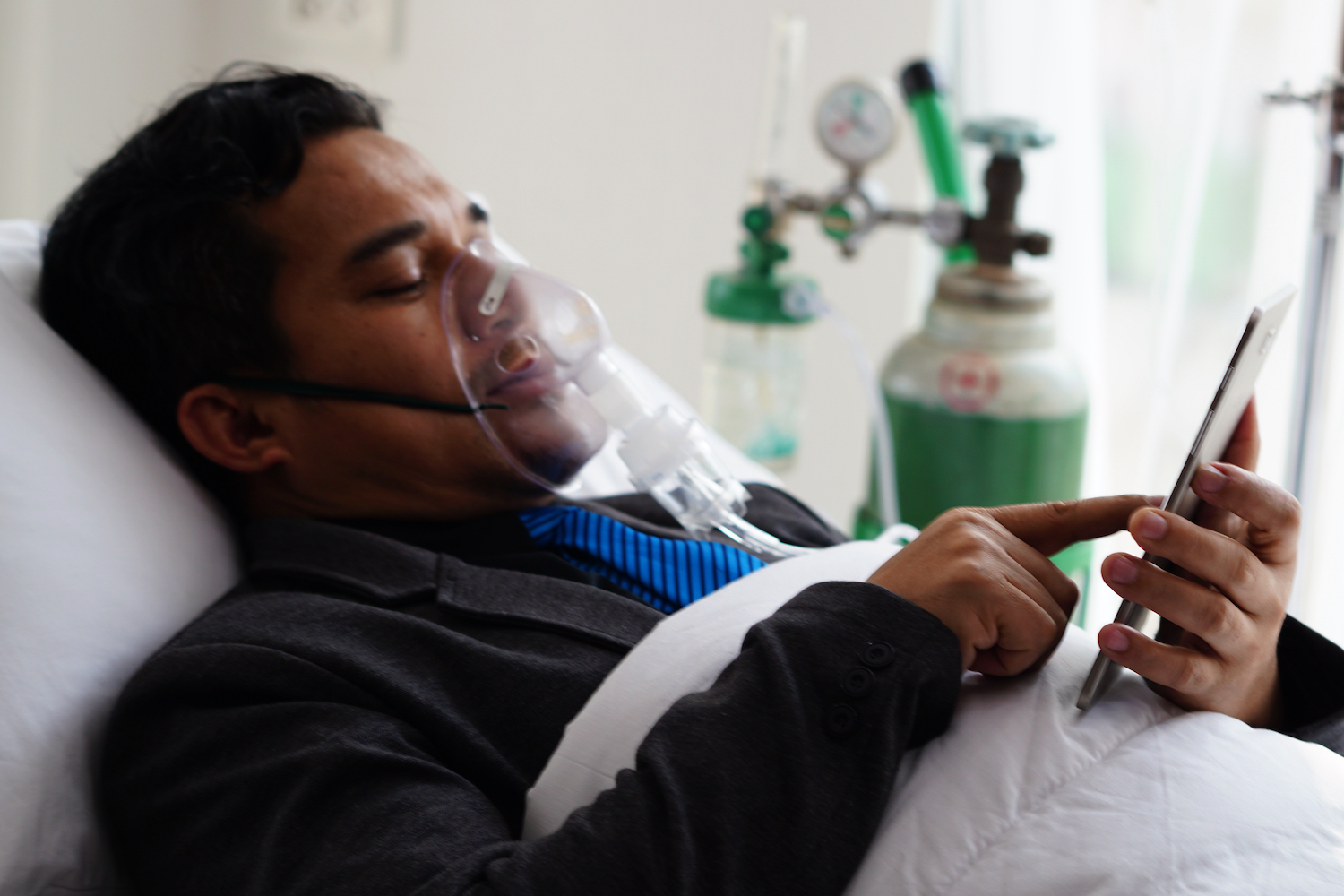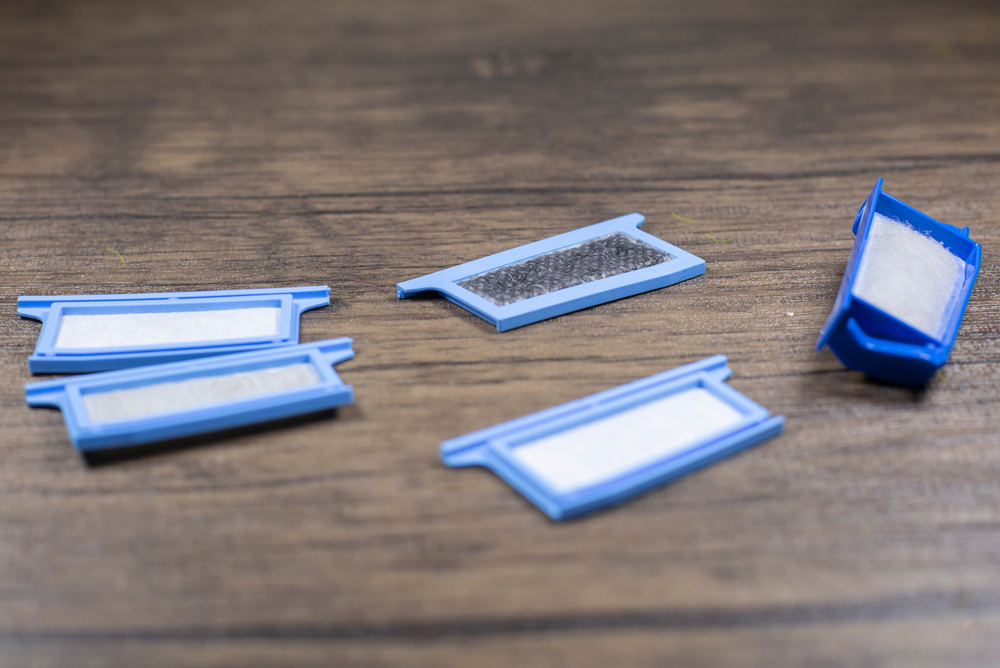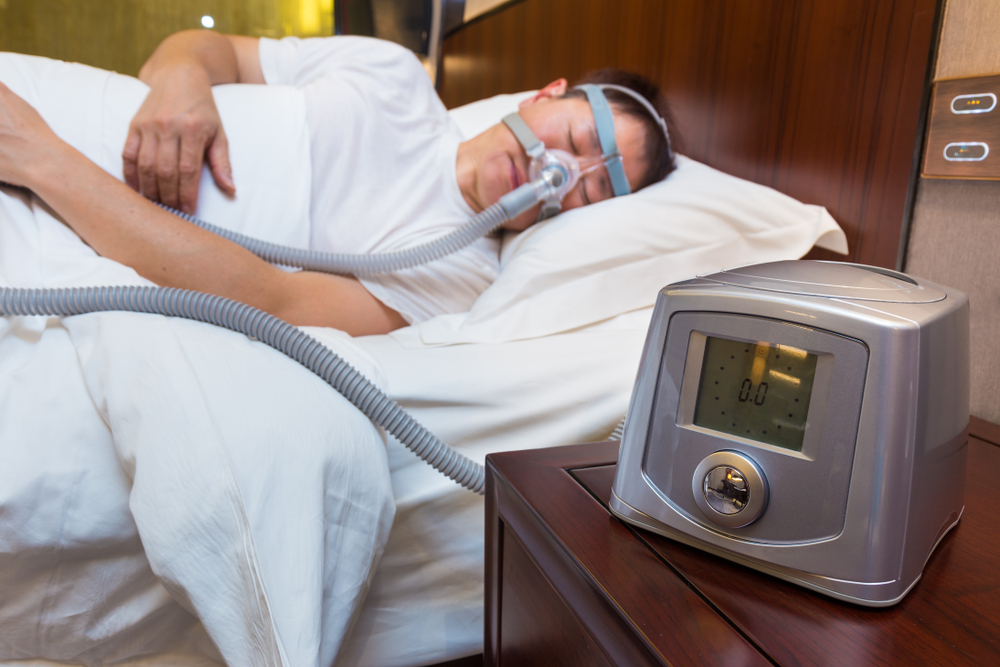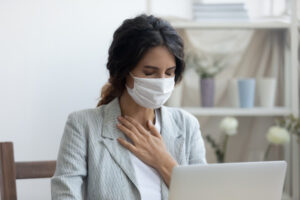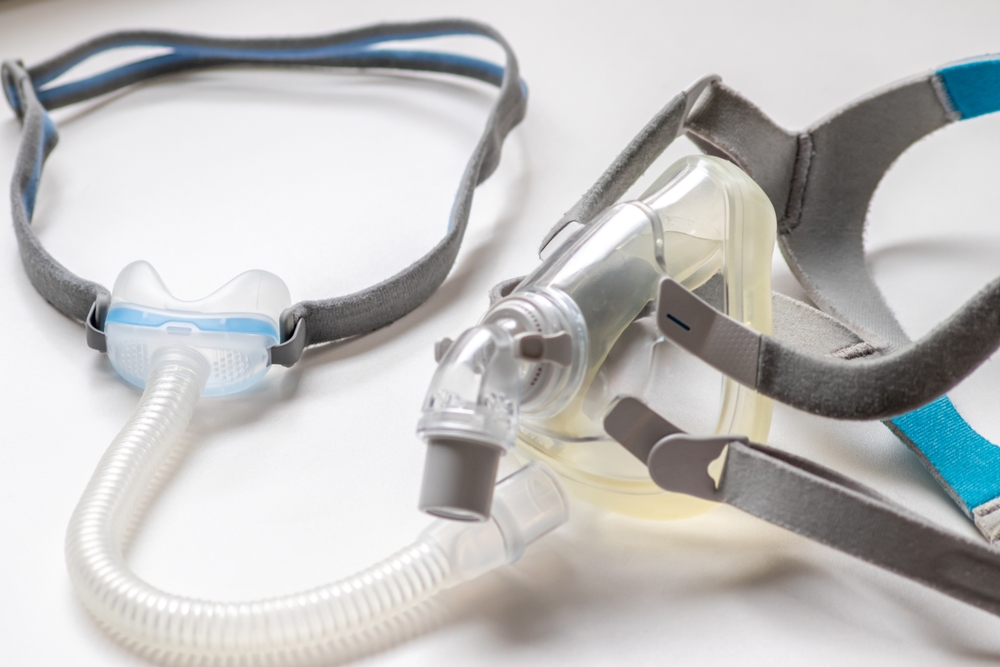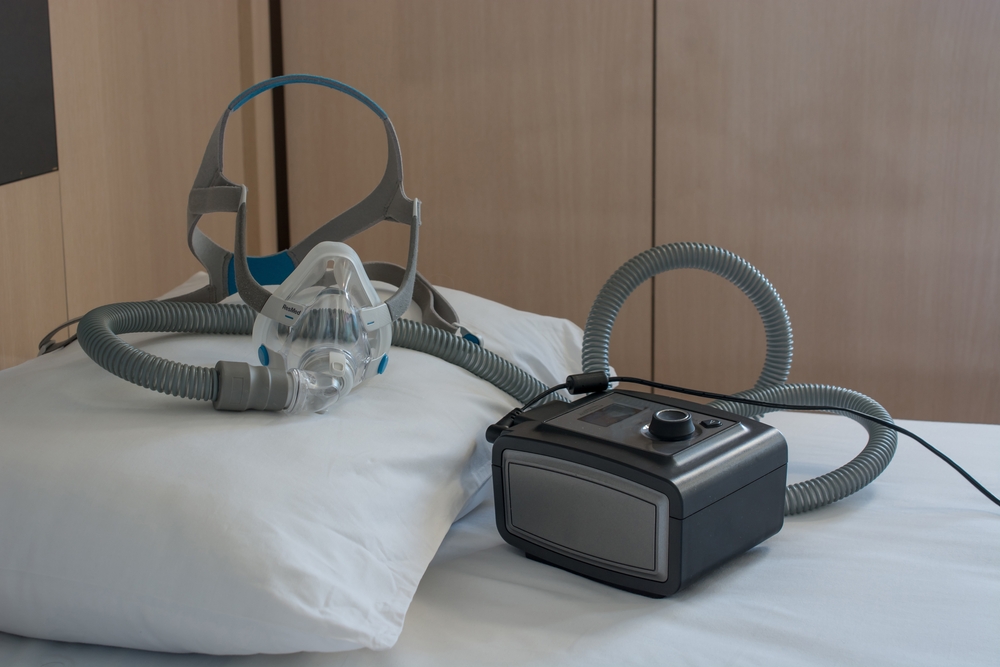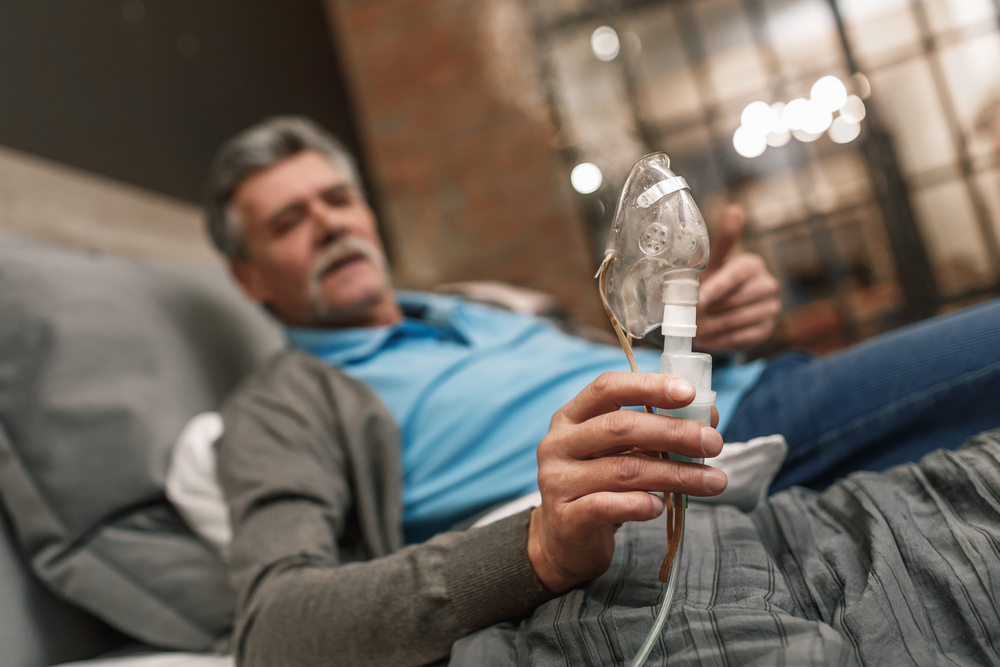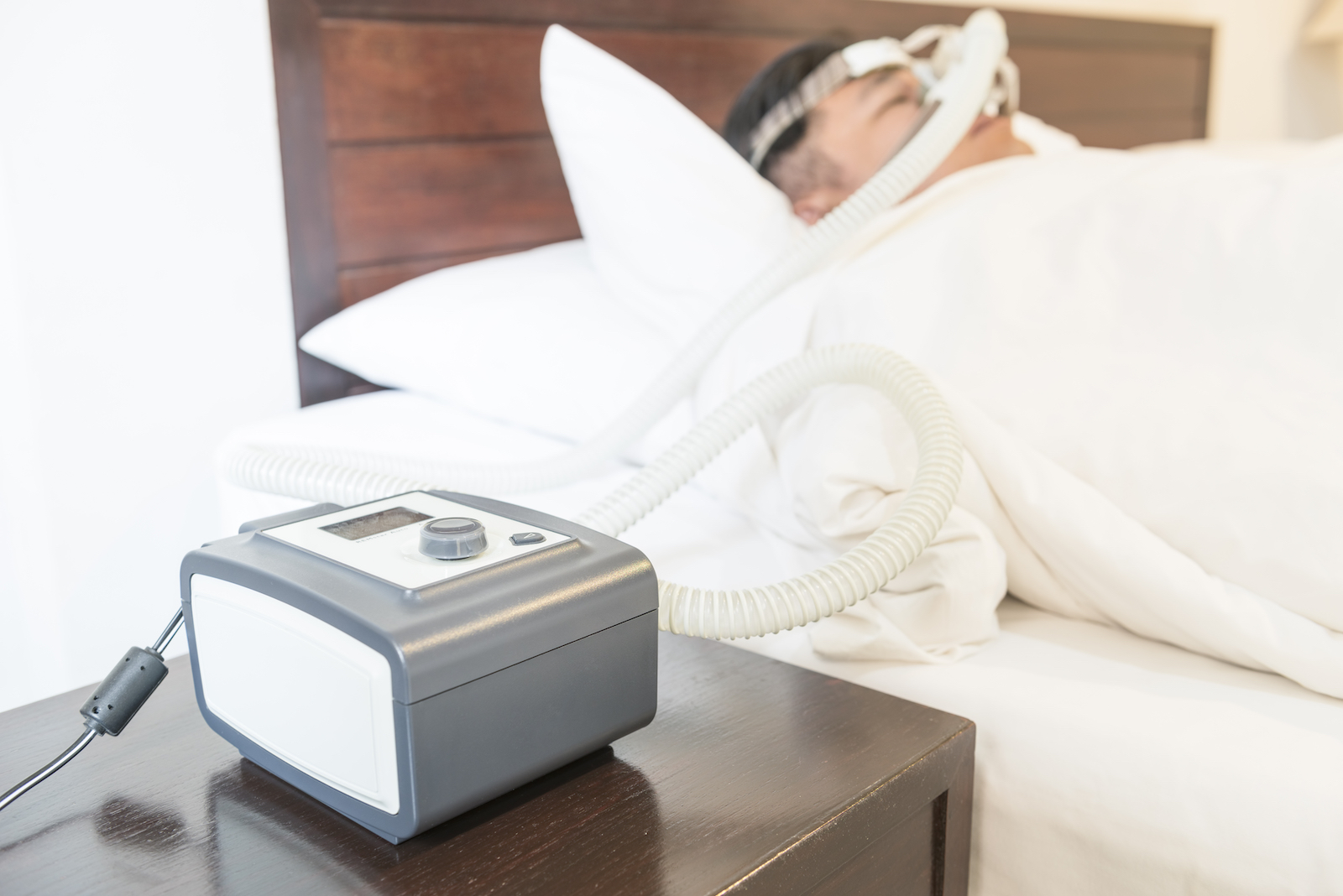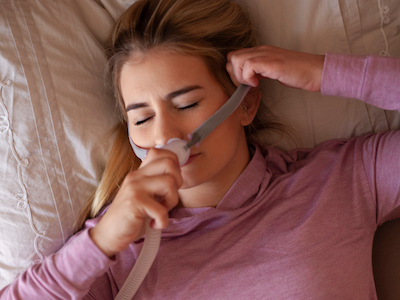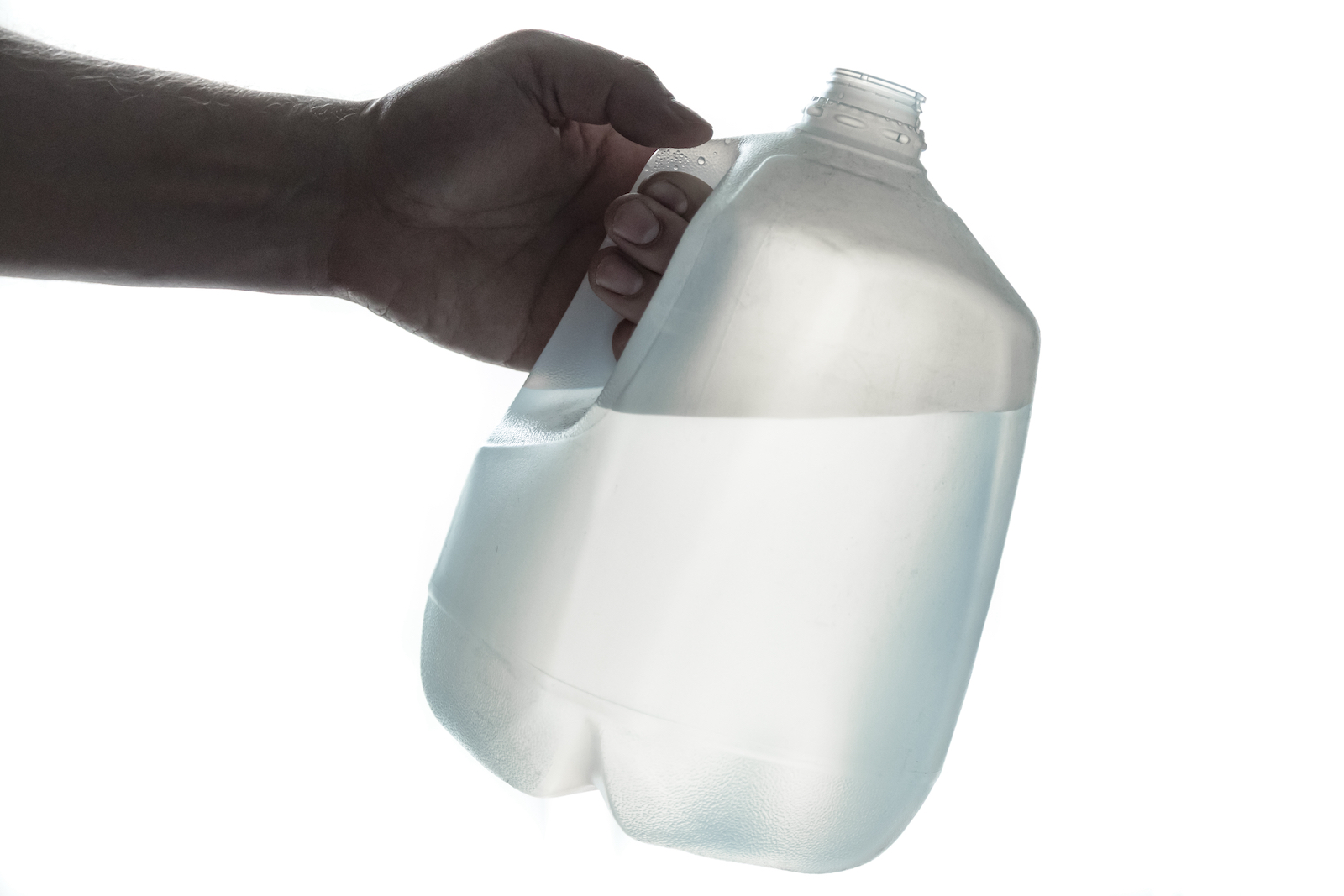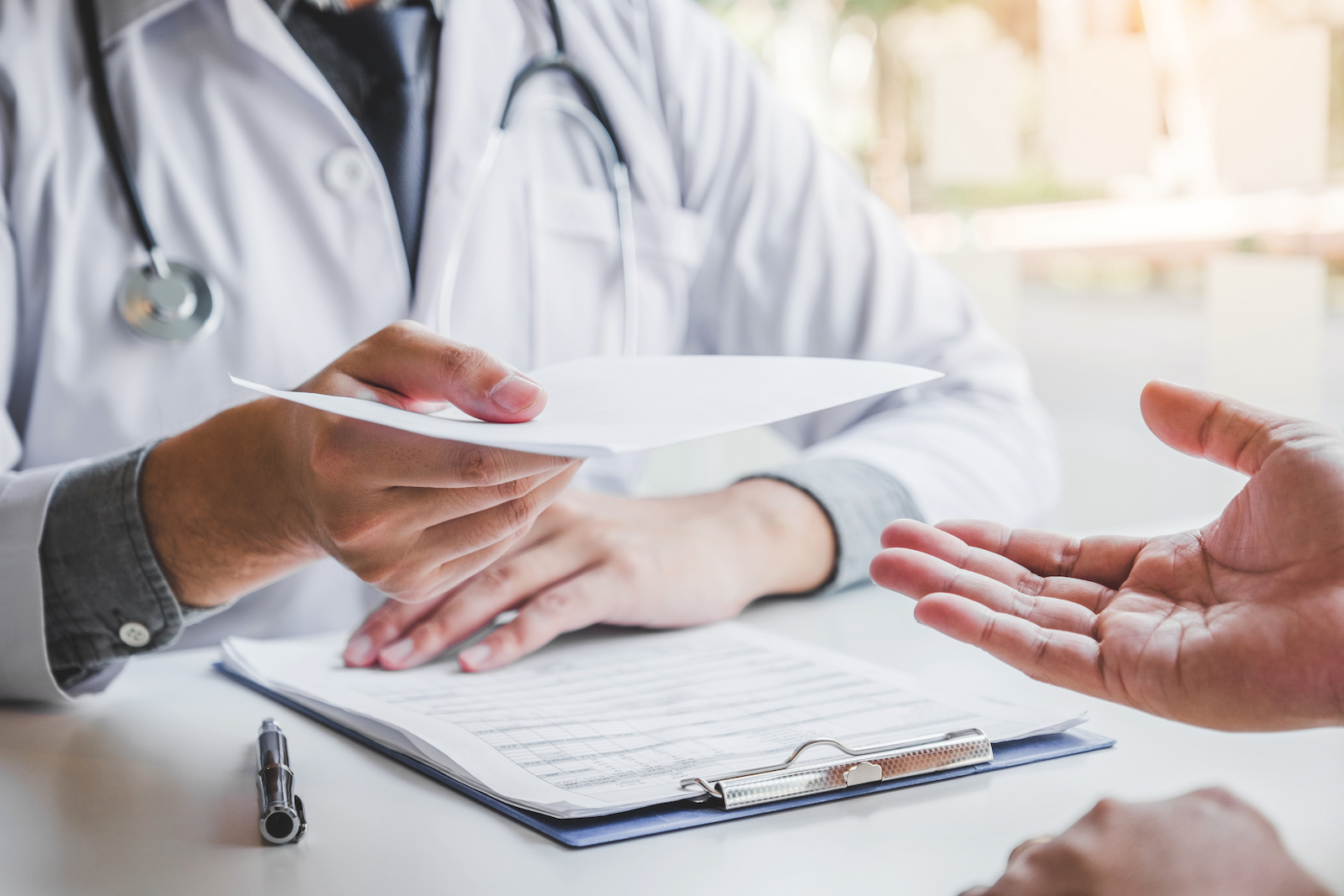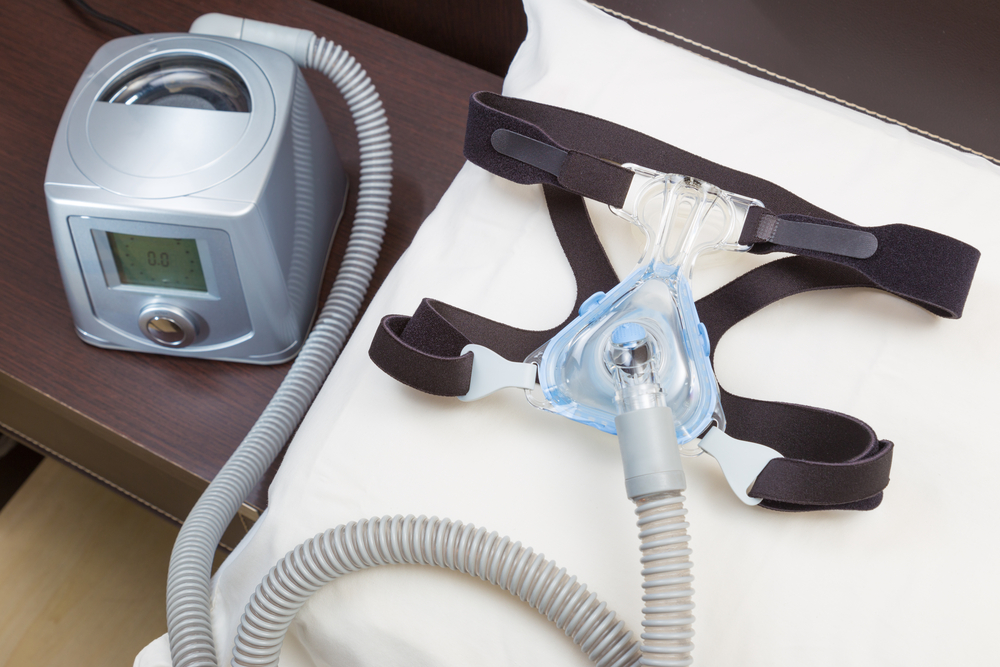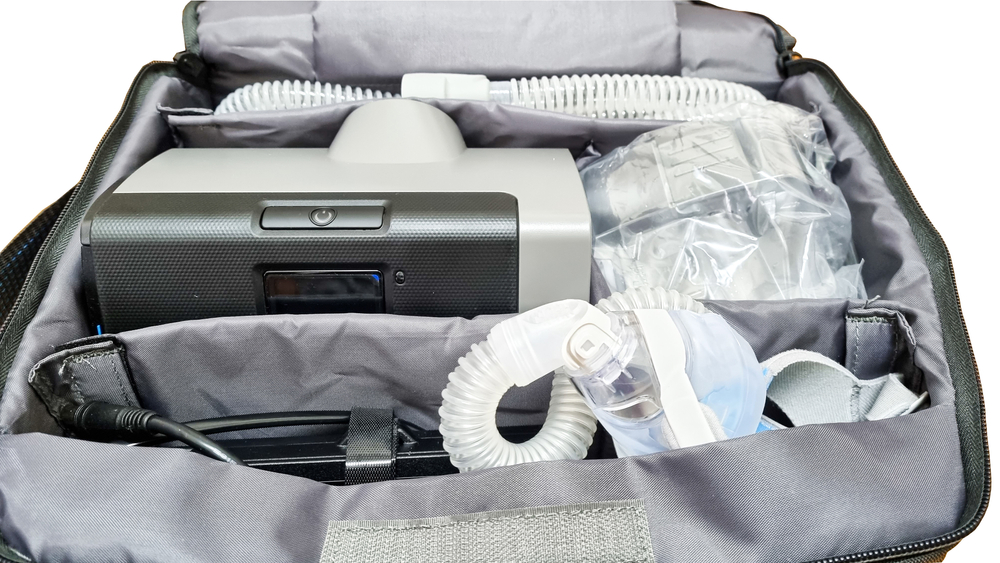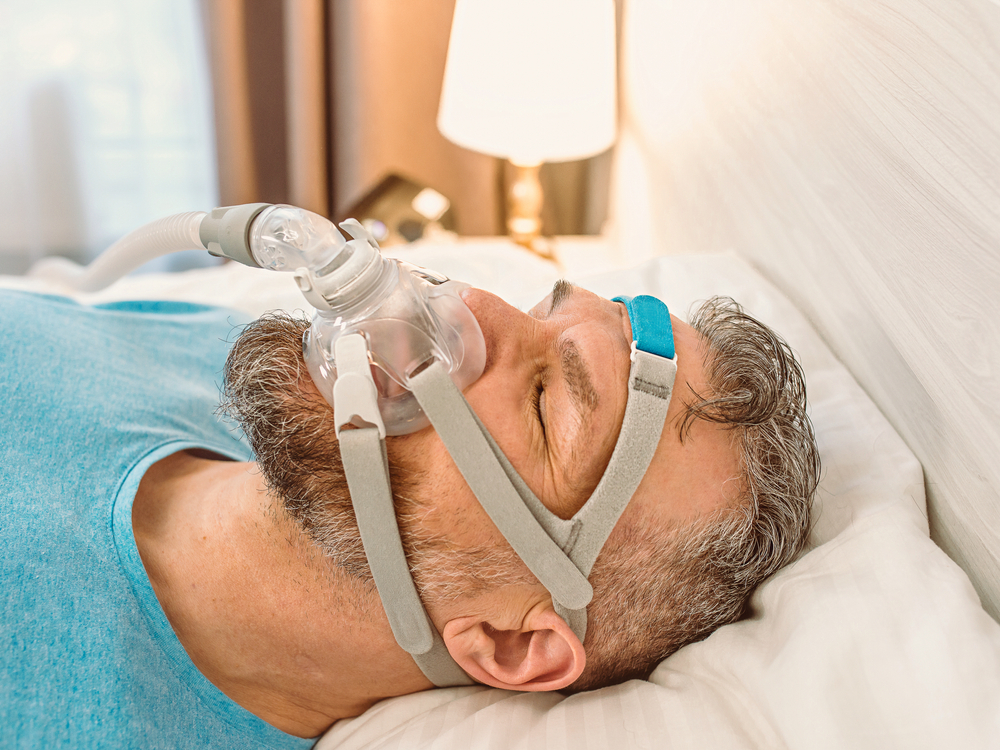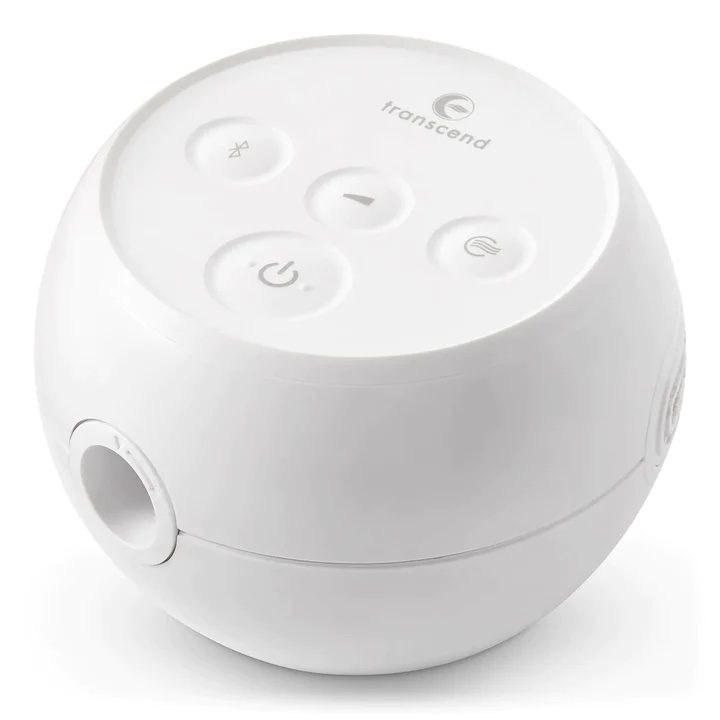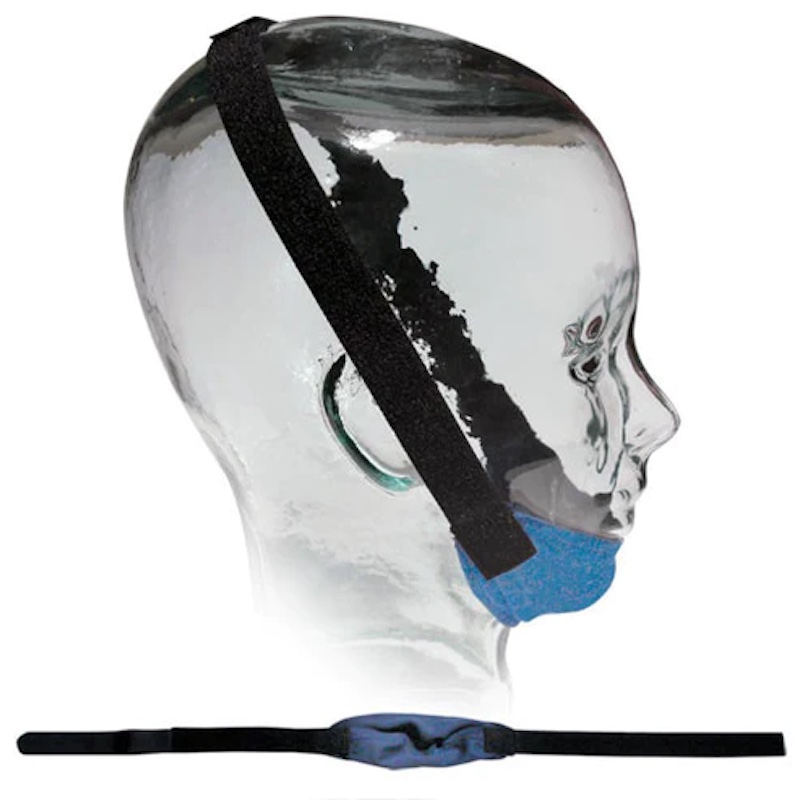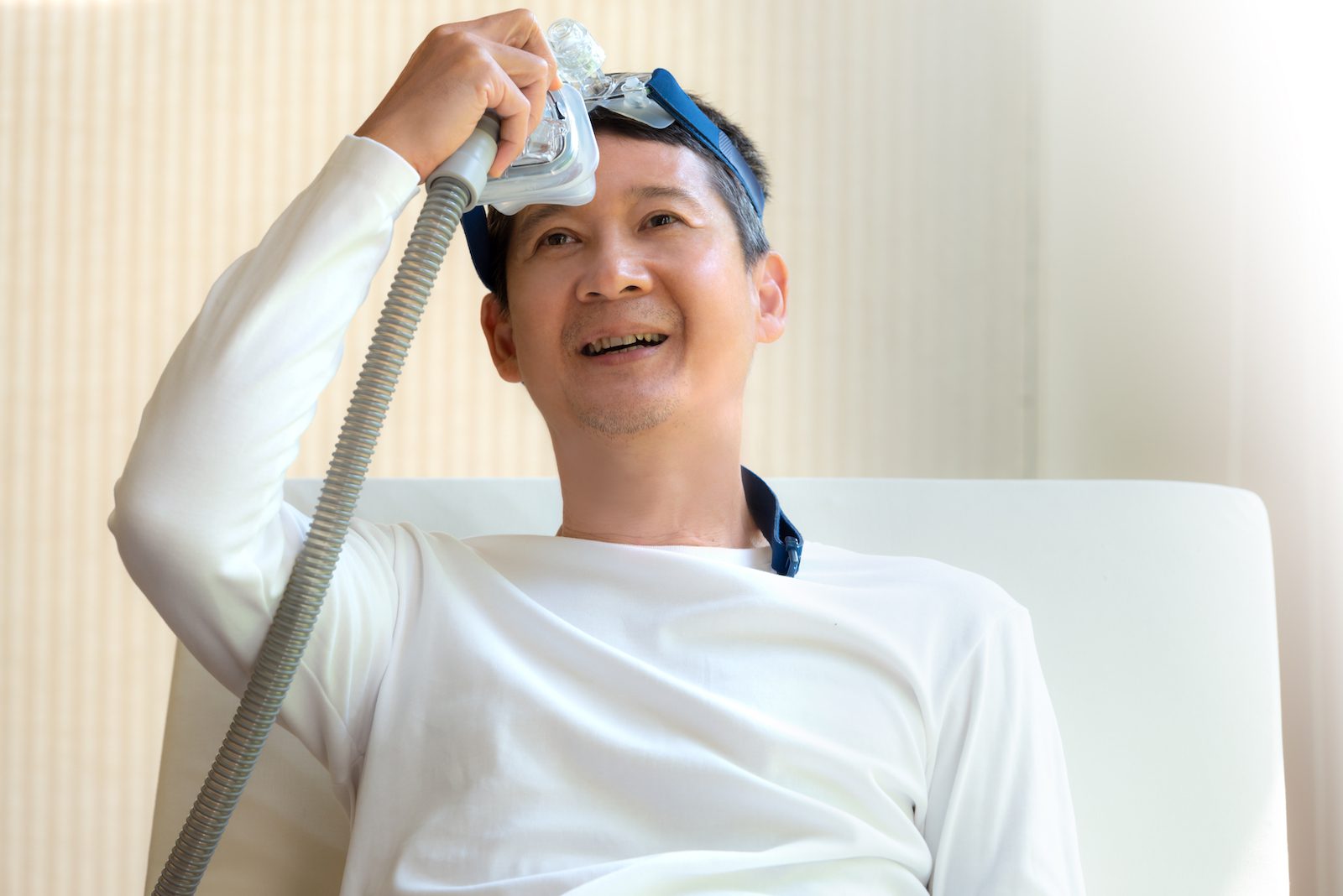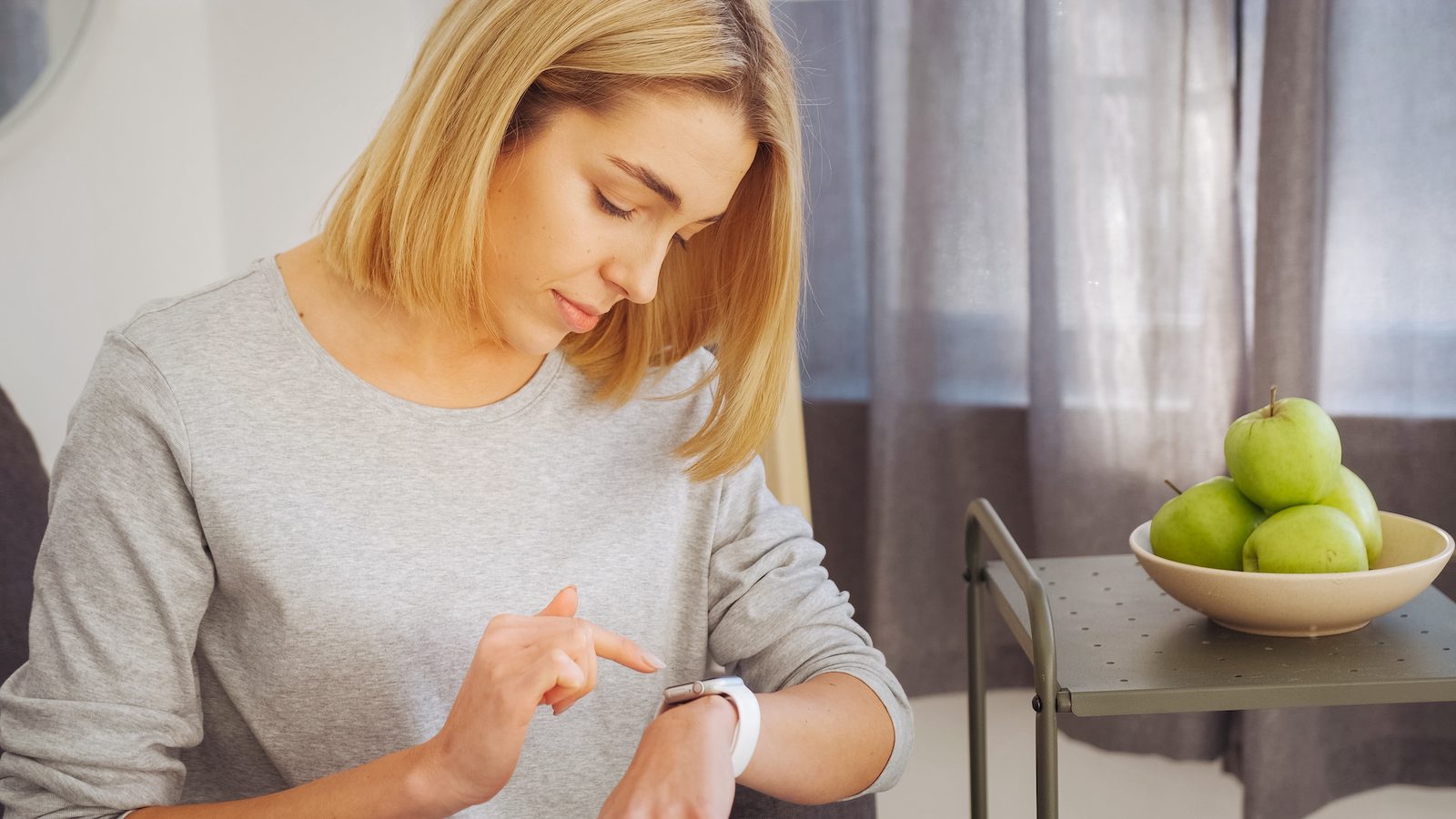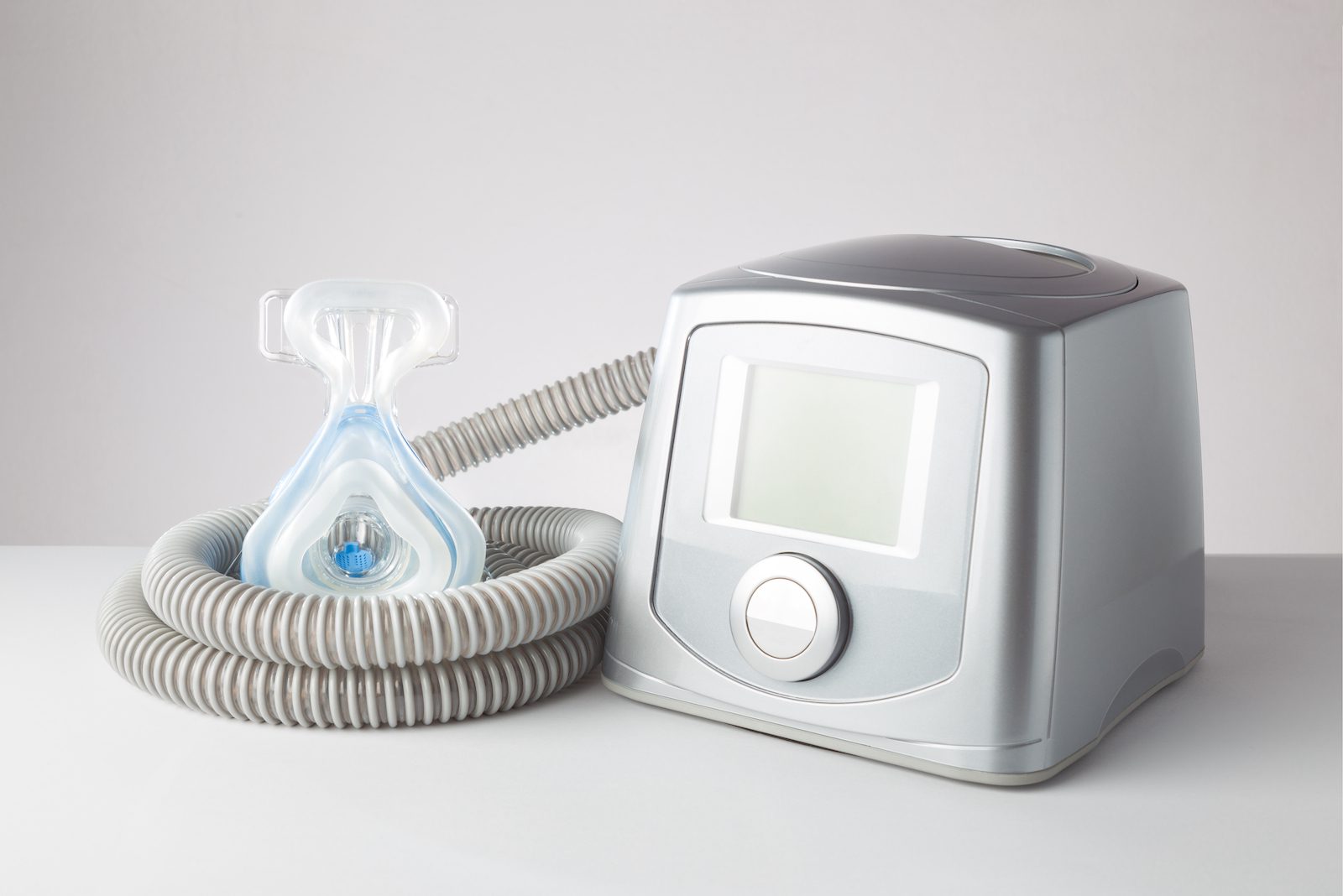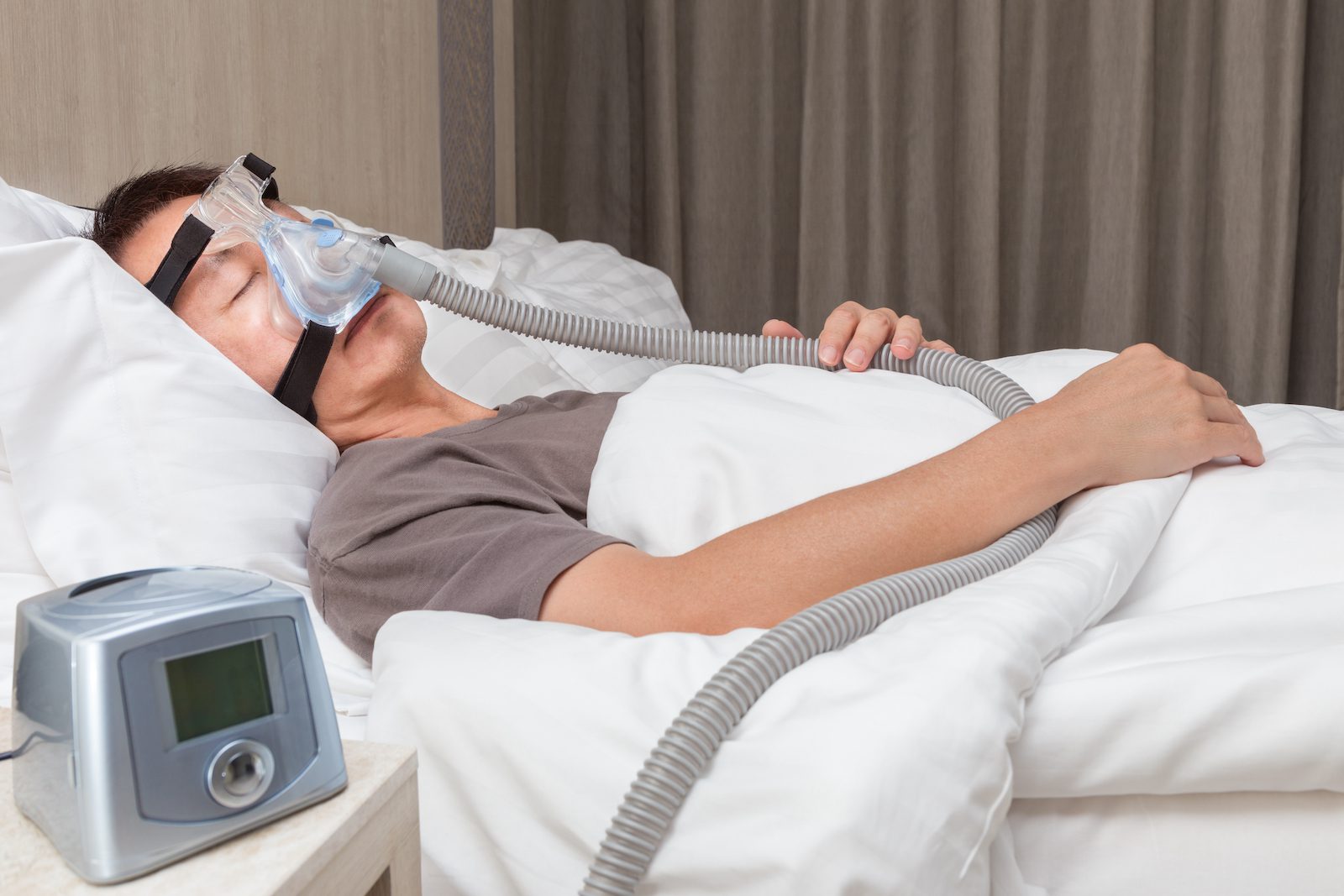Manufacturers of continuous positive airway pressure (CPAP) machines typically recommend using distilled water in the built-in humidifier in order to optimize the machine’s performance and protect against aerosolized pathogens. The humidifier can help reduce dryness in the mouth and nose, which is a common complaint of CPAP users.
CPAP therapy is a safe and effective treatment for obstructive sleep apnea, a disorder that involves the airway repeatedly getting blocked during sleep. CPAP machines provide a stream of pressurized air via a mask to keep the airway open, which improves sleep and quality of life. We explain how a CPAP humidifier works and cover the key information about using distilled water in a CPAP machine.
Why You Should Use Distilled Water for a CPAP Machine
Distilled water is usually recommended for CPAP machine humidifiers because it does not have impurities that could negatively affect the machine’s performance or your health.
A CPAP humidifier adds moisture to the air that you breathe while using the device. Heated humidifiers are now standard in most CPAP machines. Leading experts in sleep medicine recommend heated humidification for CPAP users because it can help alleviate side effects like nasal and throat dryness caused by airflow from the device.
To use a CPAP humidifier, you need to put water into a tank or reservoir that is attached to the machine. CPAP manufacturers frequently advise that you only use distilled water to fill the water tank.
Distilled water contains no minerals or other impurities that can build up over time and degrade the performance of a CPAP machine. Distilled water is also free of potentially harmful microorganisms that can be found in well water and untreated tap water.
Distilled water is often sold in bottles in supermarkets and pharmacies. There are many different kinds of bottled water, so it is helpful to know what they are and how they are different from distilled water.
- Distilled water: When water is distilled, it goes through a process of being boiled and then turned into steam. The steam is captured and turned back into water. This process removes microbes and minerals.
- Purified water: Purified water undergoes treatment to remove all chemicals regardless of the water’s initial source. However, purified water may still contain microbes depending on how the water was treated.
- Spring water: Spring water comes from an underground source that either flows to the surface or is collected by drilling down into the ground. It is sometimes referred to as “glacier water” or “mountain water,” but there are no regulations about how these labels are used. Bottled spring water is sometimes but not always treated.
- Mineral water: Mineral water is derived from an underground source and naturally contains a minimum amount of minerals and other substances that are dissolved in the water.
Distilled water is the best choice for your CPAP machine because it is free of germs and from minerals which may damage the machine.
You should also avoid adding any substances like essential oils or fragrances to your CPAP machine. Additives may be harmful when inhaled over many hours of sleep and may not be good for the CPAP machine.
Can You Make Distilled Water for a CPAP Machine?
You can make distilled water at home by boiling water, capturing the steam, and allowing the steam to condense back into water and drip into a container. You can do this using only a cooking pot, lid, and cup. Alternatively, you can purchase a kit that includes the necessary equipment to distill water at home.
Making your own distilled water may be a good choice if you are traveling or unable to easily obtain distilled water. While this is a fairly simple process, it may prove time consuming, especially if you need a significant quantity of distilled water.
In addition, you need to plan carefully about how to store the distilled water you make. If your containers are not food-grade or if they are not properly sanitized, you may inadvertently introduce chemicals or microbes into your water.
Commercially sold distilled water that is made in a factory must be prepared and bottled under strict sanitary conditions that are enforced by the U.S. Food and Drug Administration.
Distilled water is sold at many grocery stores and drug stores. It is also available from online retailers and CPAP supply companies.
What Happens If You Use Tap Water in Your CPAP Machine?
Using tap water in your CPAP machine may negatively impact its performance. Putting untreated water, such as well water, in a CPAP humidifier may create health risks from the potential inhalation of unhealthy microbes.
The water that comes out of your tap is typically delivered to you through either a local water utility service or a private well. While tap water is often safe to drink, it is not usually recommended for use in CPAP machines. While the stomach contains acids that can kill any ingested microorganism found in tap water, the respiratory tract lacks this defense mechanism. Tap water may contain minerals that can build up over time and affect how well a CPAP machine works.
If you do not have access to distilled water, a short-term solution is to use either purified bottled water or filtered tap water. However, this may require you to clean your machine more thoroughly to prevent excessive mineral accumulation in the humidifier reservoir.
Boiling tap water will kill microorganisms, but it will not remove minerals and salts. Therefore boiled tap water can still lead to mineral buildup in the CPAP machine.
Do You Have to Use Water in a CPAP Machine?
Most CPAP machines now come equipped with humidifiers that require water to function properly. If you don’t add water or if the water in the humidifier runs out, the machine will still deliver pressurized air, but the air will not carry added moisture.
Humidification itself is not essential to the effectiveness of CPAP therapy, but it can be important to addressing dryness in the nose or mouth. As a result, sleep experts recommend the use of heated humidification for CPAP therapy.
By reducing dryness and irritation, a CPAP humidifier can often help with CPAP side effects like congestion, crusting in the nose, and nosebleeds. However, not everyone experiences these side effects, and some people may prefer to use their CPAP machine without humidification. If you choose not to add water to the system, you should turn off the humidifier so that you are not heating an empty water chamber and breathing hot, dry air.
Tips for Traveling With Your CPAP Machine
It is important to use your CPAP machine consistently because sleep apnea symptoms like daytime sleepiness can quickly come back if you don’t use the device. Using a CPAP machine when you travel can preserve your sleep quality and prevent sleepiness from impacting your trip.
If you are bringing your CPAP machine or a travel CPAP device with you, several tips may help you make sure to have distilled water on hand.
- Pack distilled water in checked bags: For checked baggage, you can bring larger bottles of distilled water. Bottles designed to be lightweight for travel can be found online and let you more easily pack distilled water.
- Purchase distilled water at your destination: When you arrive, you can visit a grocery store or drug store to buy enough distilled water to last the rest of your trip.
- Make your own distilled water: If you are unable to find distilled water and are staying somewhere with a kitchen, you can make distilled water yourself. However, it may be challenging to find the time and materials to prepare distilled water in a sanitary way while traveling.
If your trip is brief and you are unable to bring, purchase, or make distilled water, you can consider using purified bottled water or filtered tap water in your CPAP machine.



